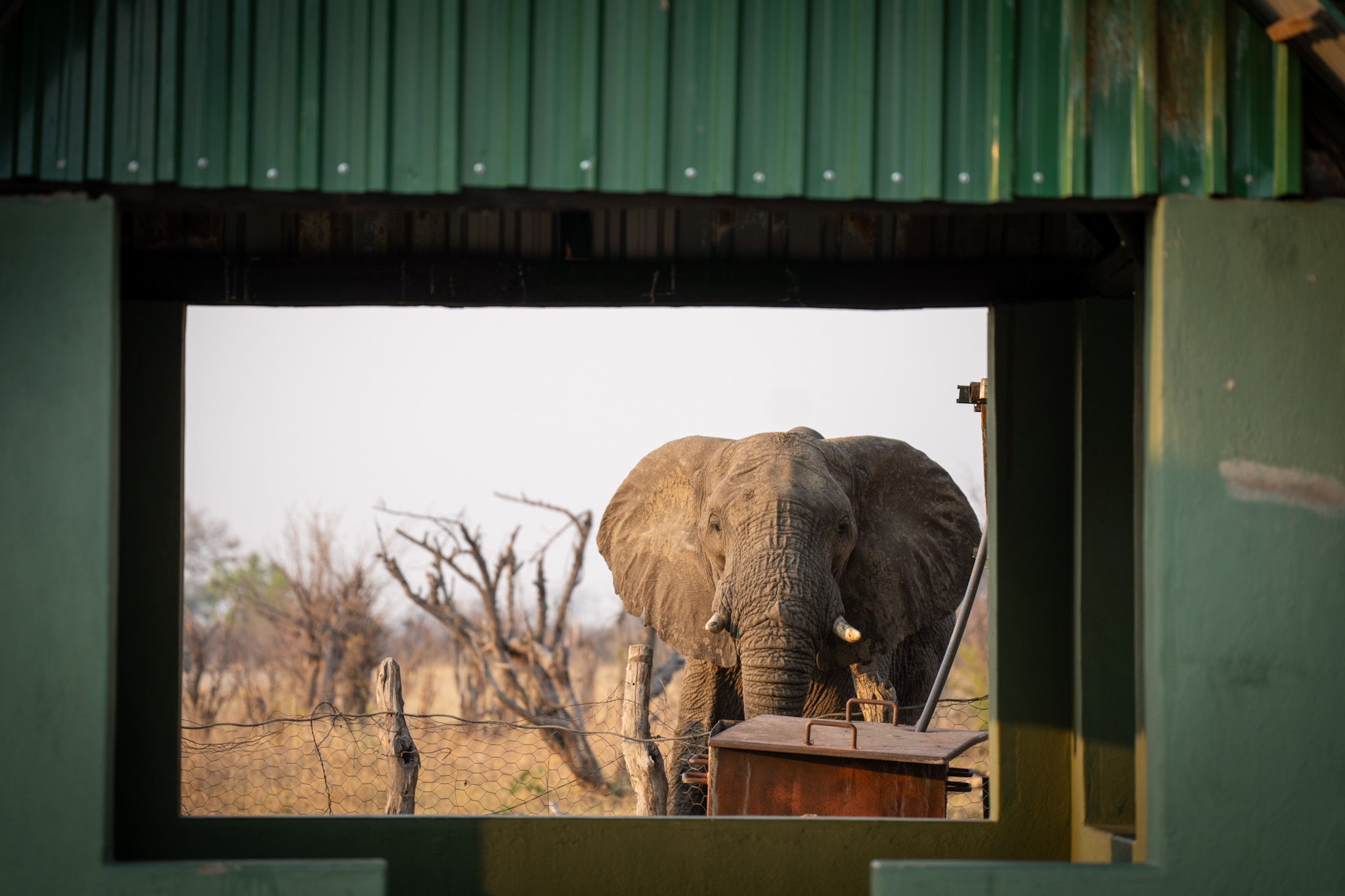The drive to Sinamatella was unspectacular. The camp is located on a hill, with campsites along the edge. Sinamatella has been arousing tempers for years, as it is badly dilapidated and announced renovations failed to materialize. We were curious to see what would await us. At first we were pleasantly surprised, because the campsites area had been reworked. New fireplaces were created, as well as covered seating, from which the lower-lying Pan could be observed very well. Some disillusionment set in when we realized that the hoped-for renovation of the toilets and showers was only wastepaper. Here, only the brush was swung and the outdated facilities superficially prettified.
Animal rich days in the surroundings of Sinamatella
The best part was getting up early in the morning, preparing the coffee and tea and taking a seat on the edge of the hill. Listening to the awakening nature and experiencing the sunrise is the highlight of an African morning for us. Then, with the first light each morning there, it quickly became clear how incredibly far you can see from up there. We estimated the distance to be 60+ km. In the morning we explored the surrounding area early and were not disappointed. In the area of Mandavu Dam and as a highlight, at Masuma Dam, we got our money’s worth animal-wise. We were able to observe five lion brothers, various herds of buffalo and elephants and were delighted to see numerous antelopes, which blended wonderfully into the scenery. At the Hide at Masuma Dam we met several nice people. Peter and Sabine, who are on the road with their truck August or various Zimbabweans, with whom we had very nice conversations.
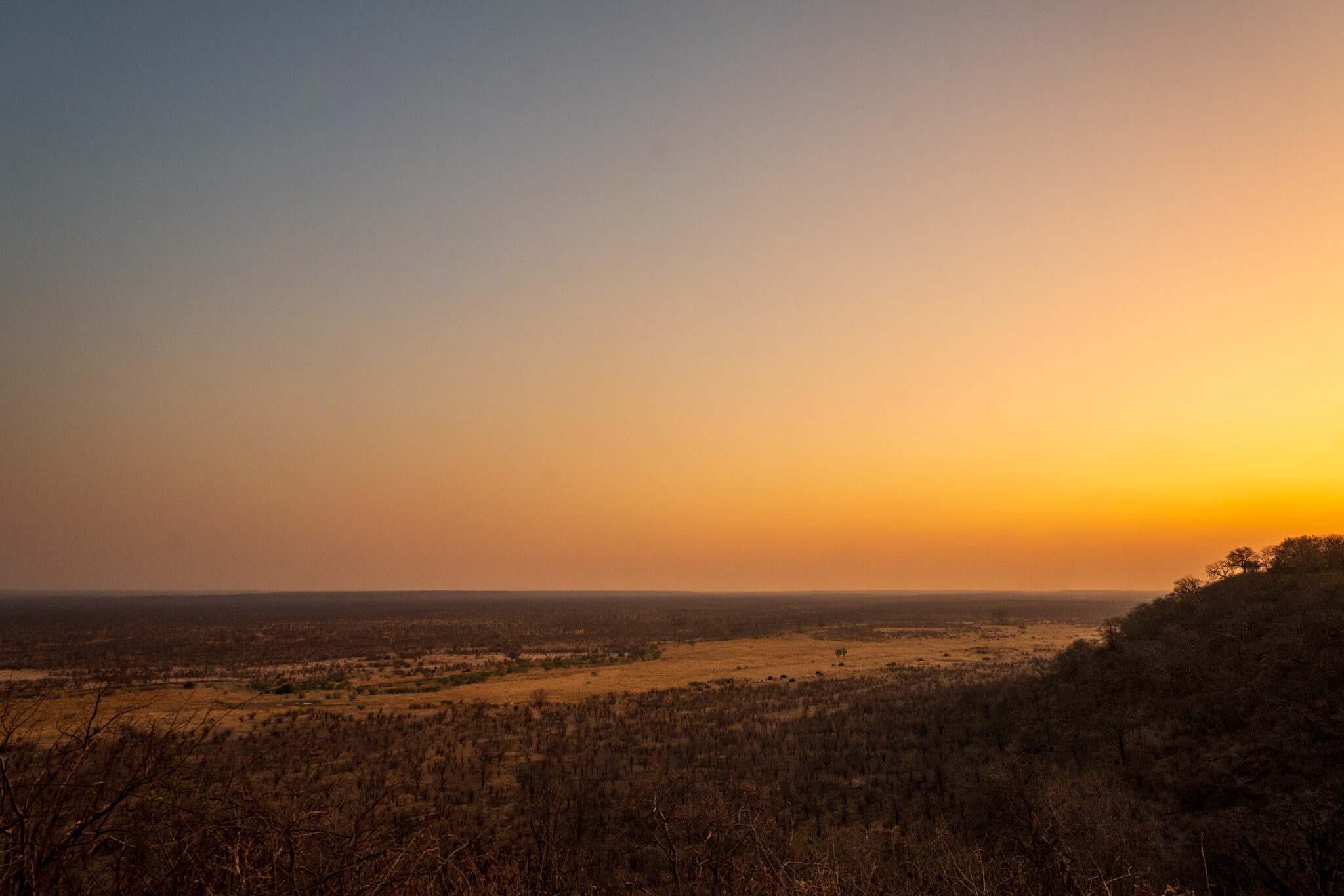
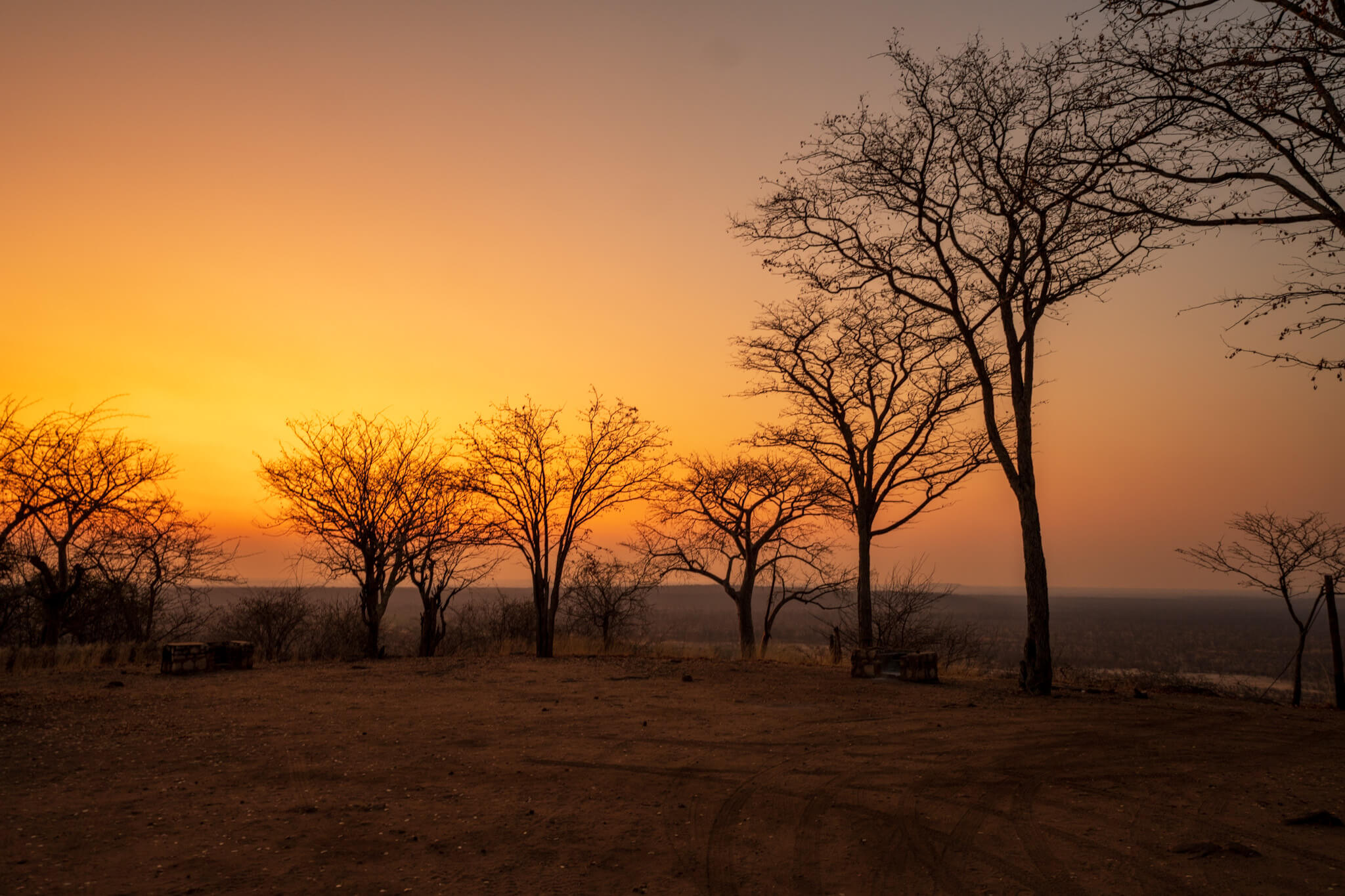
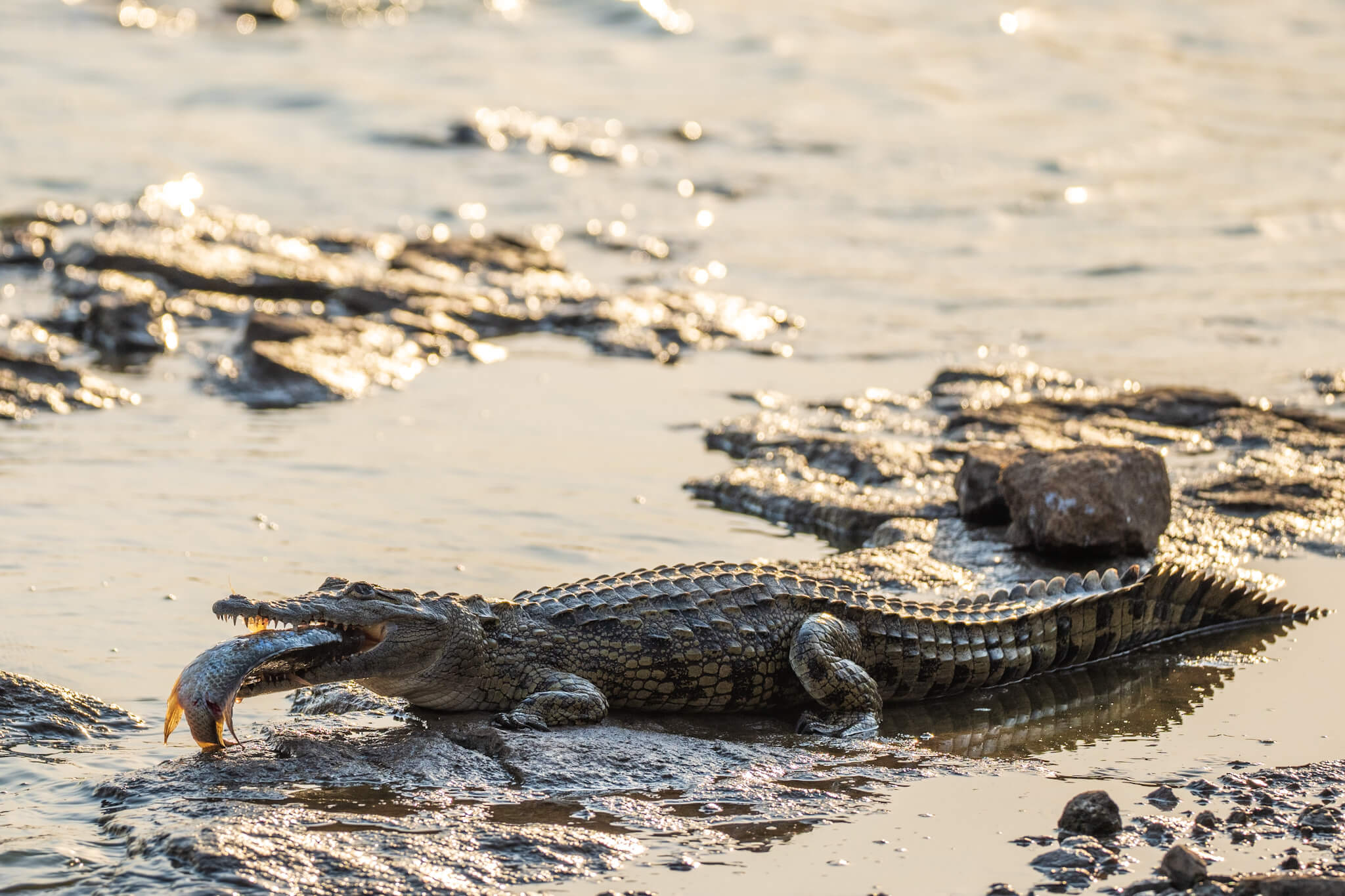
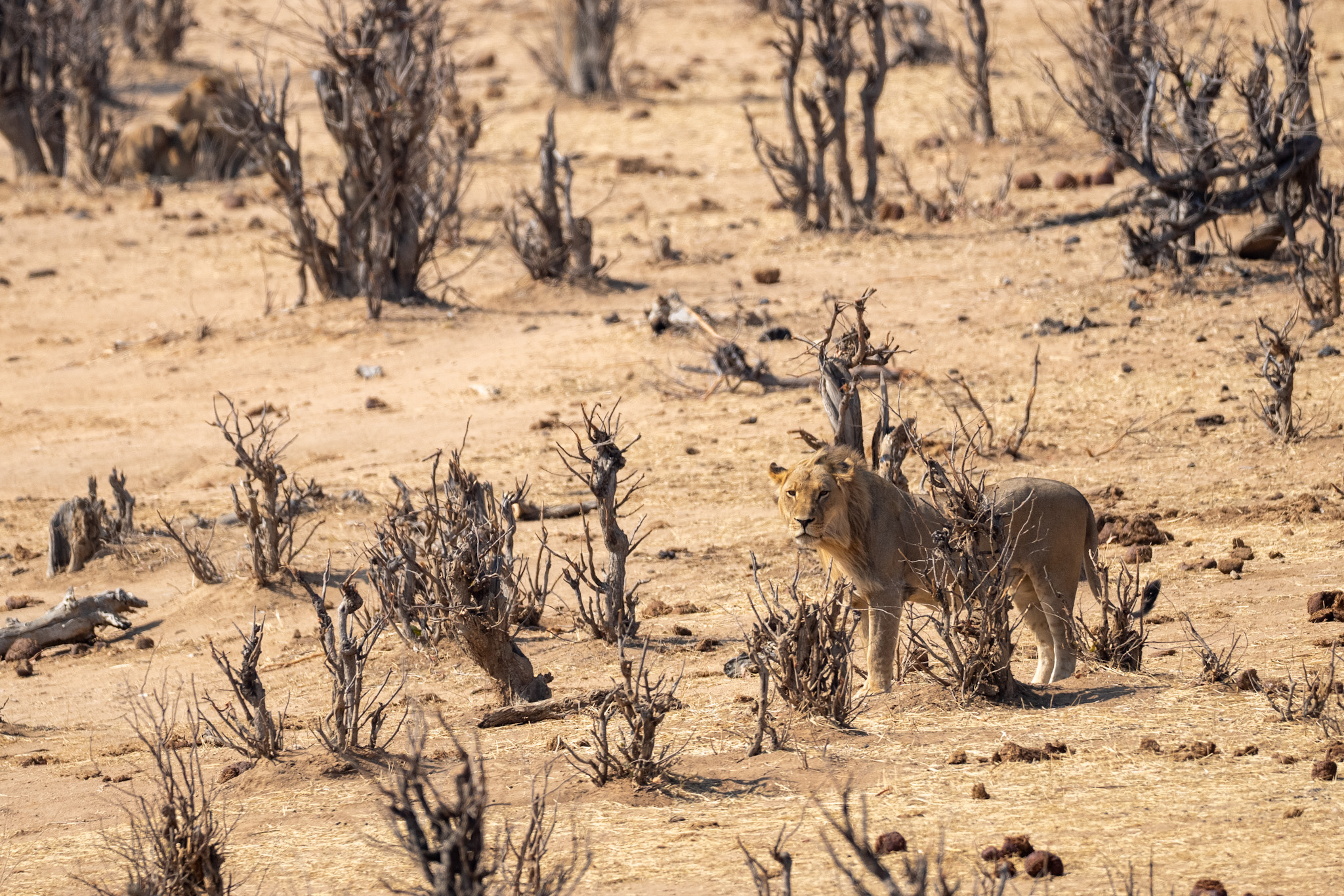
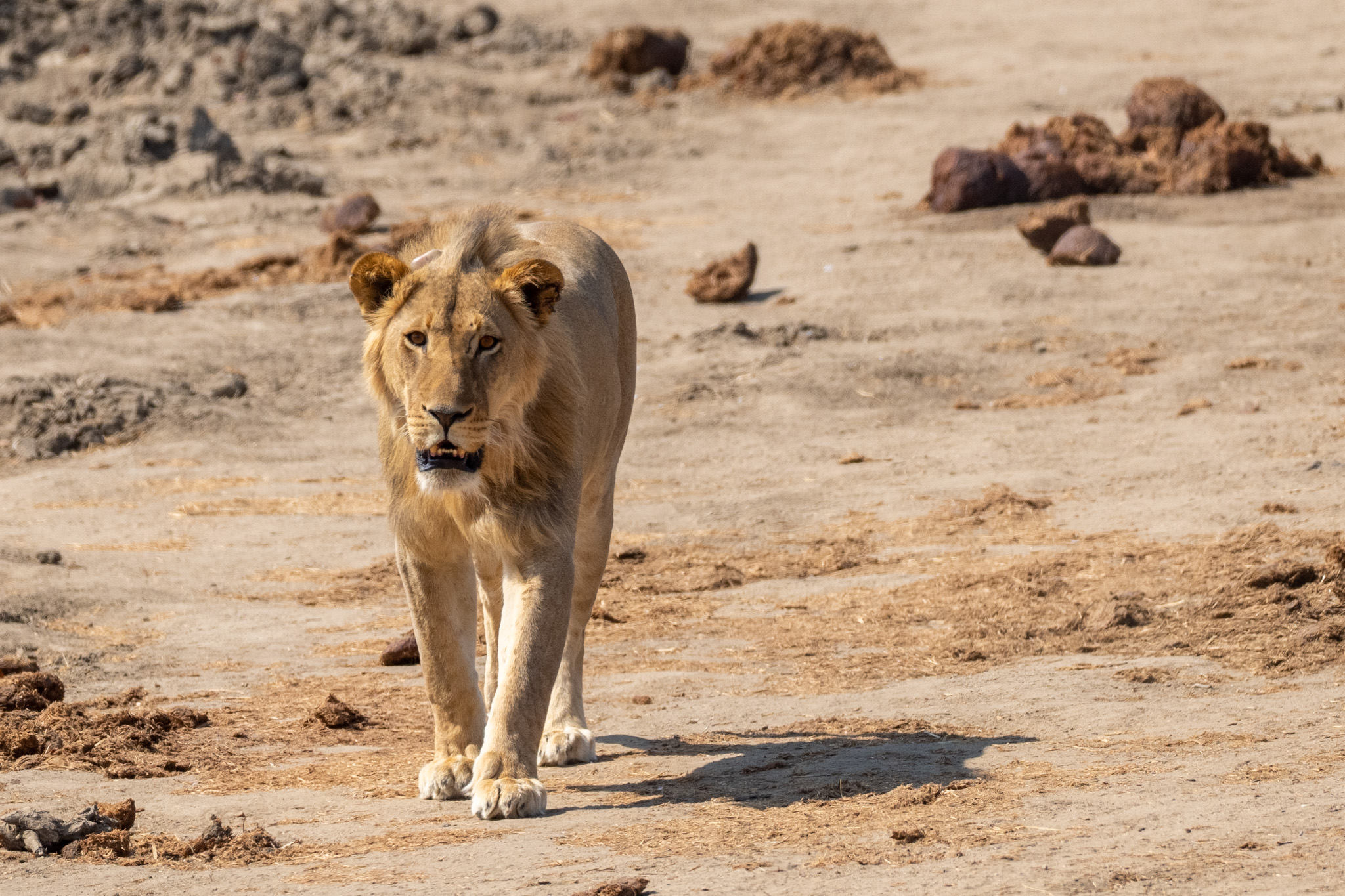
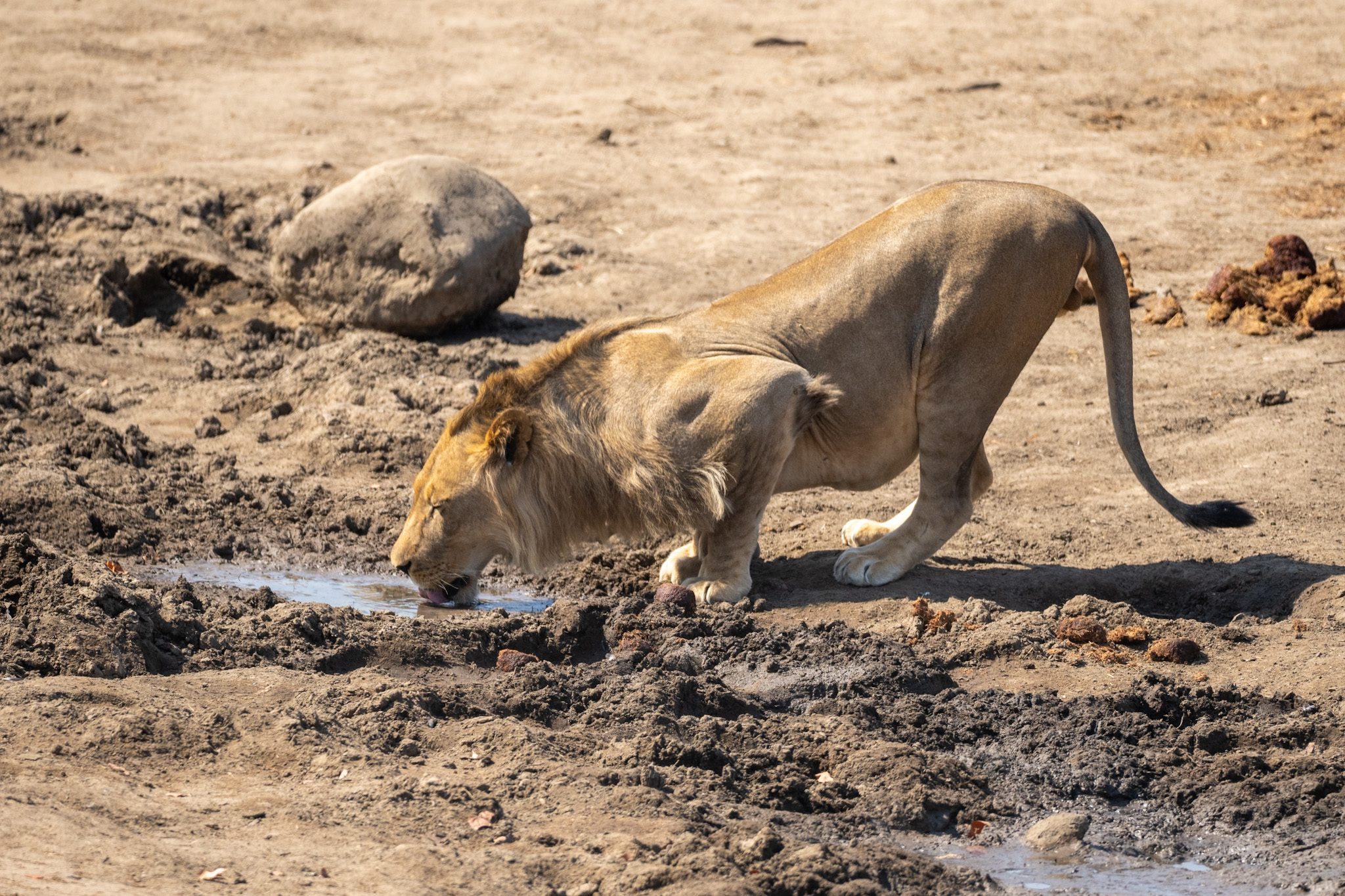
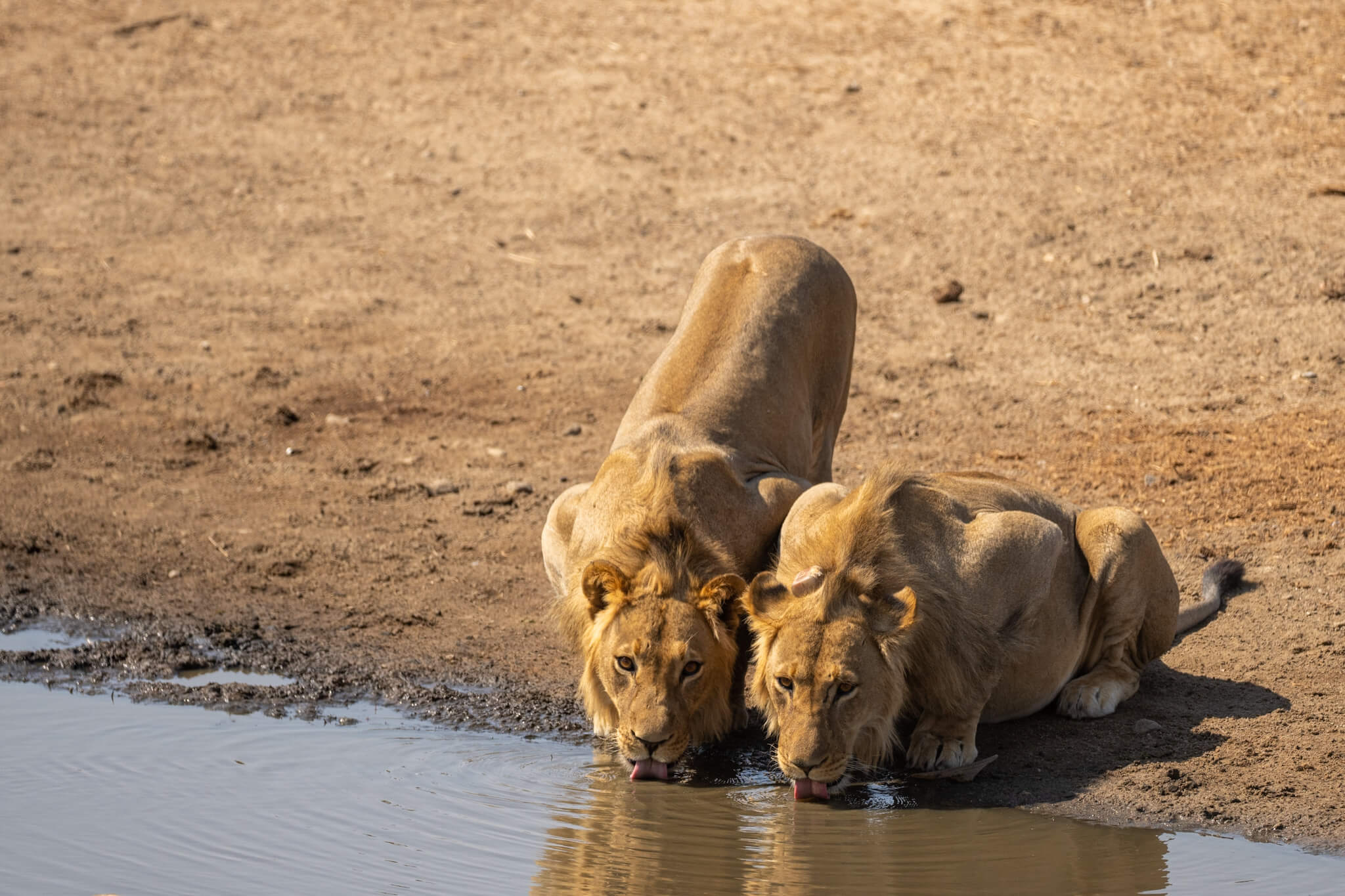
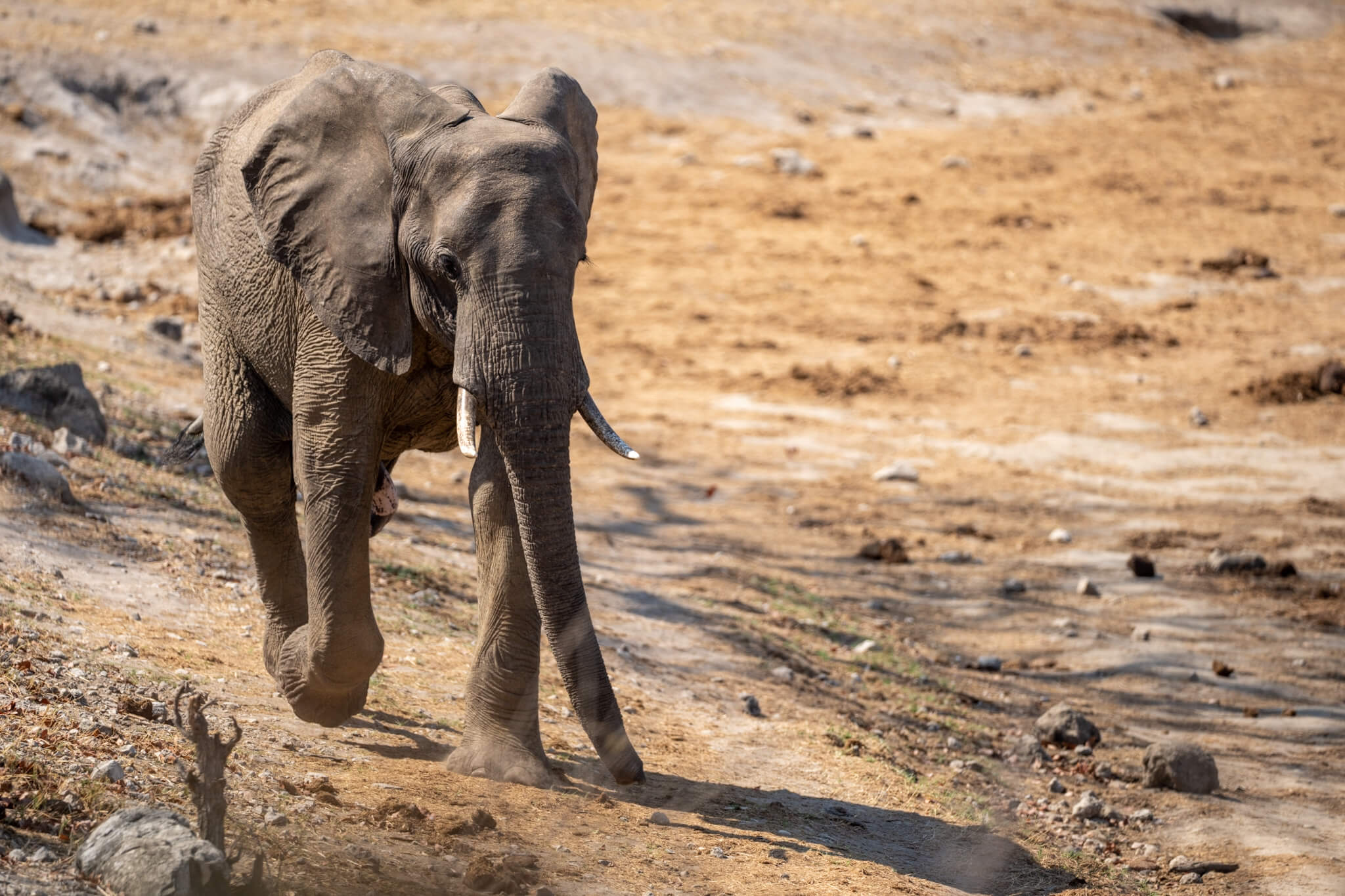
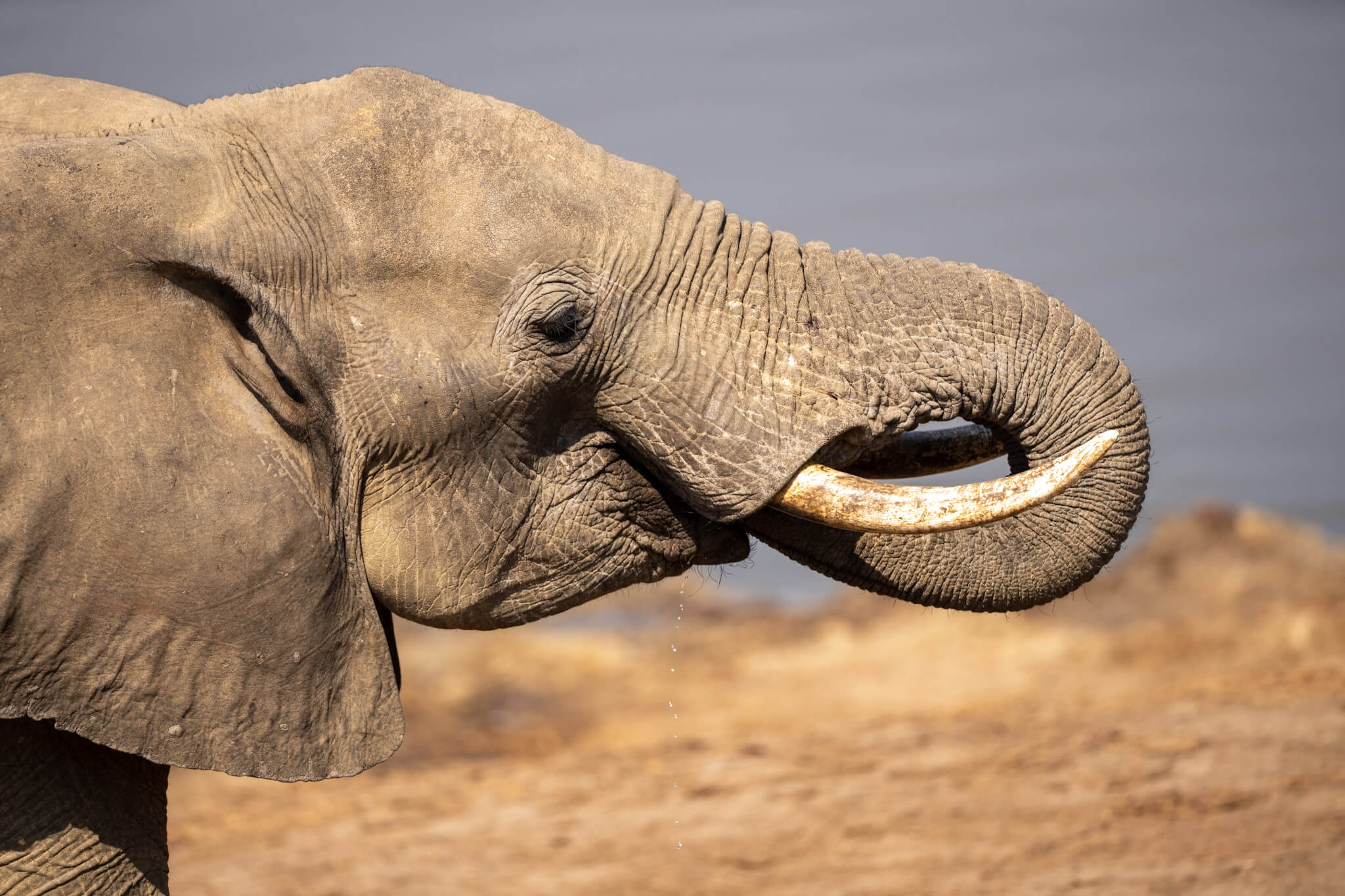
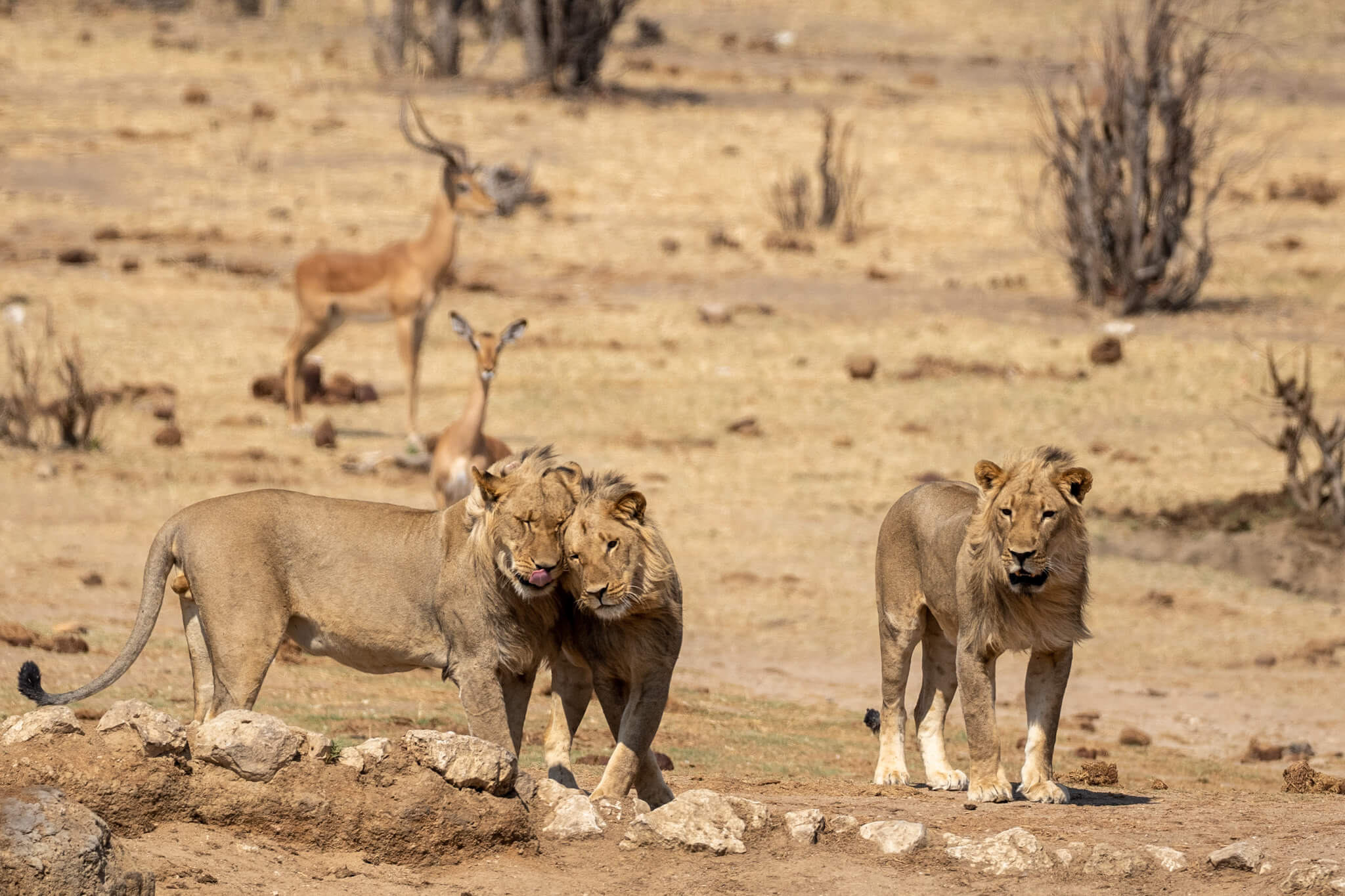
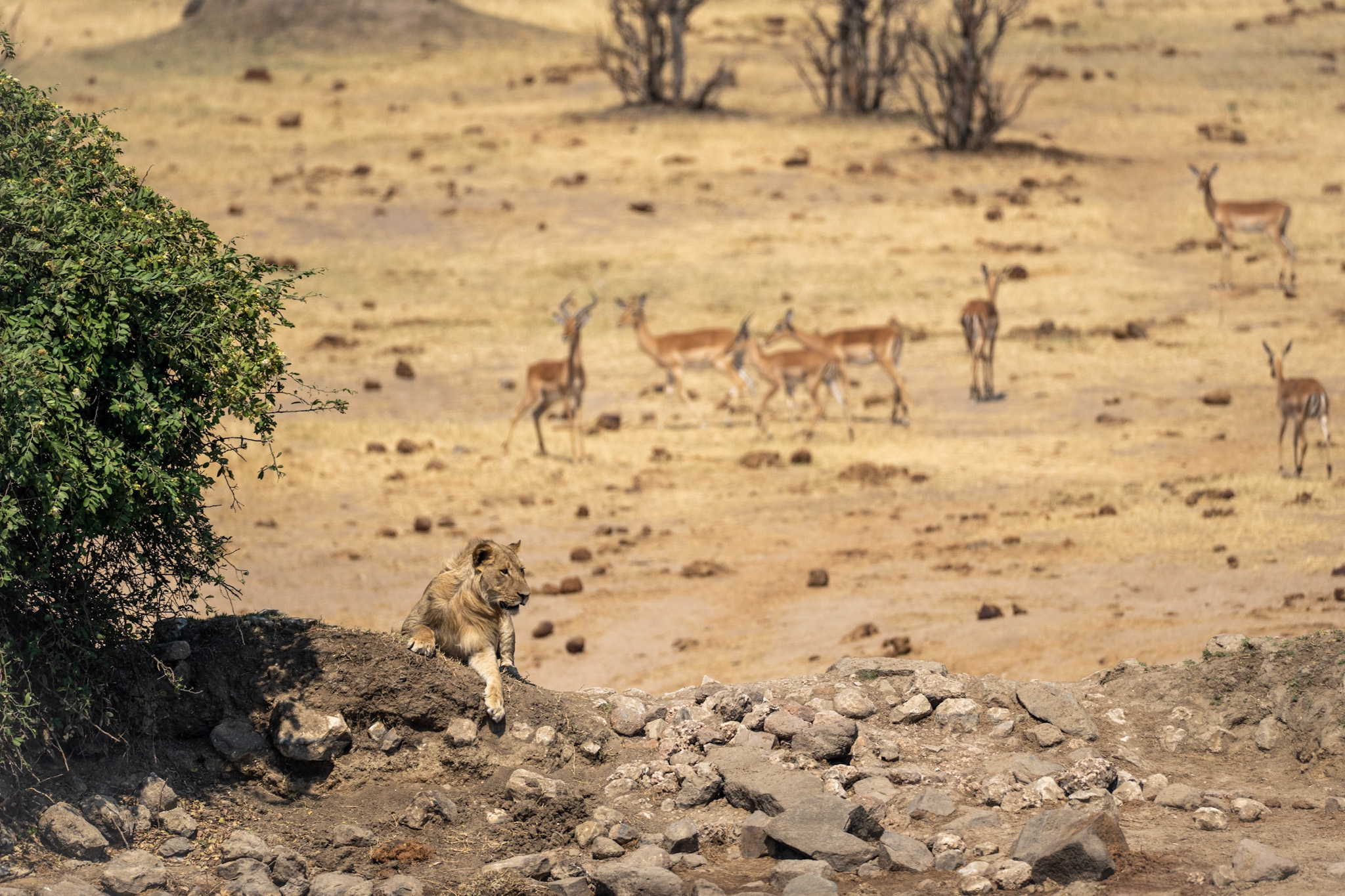
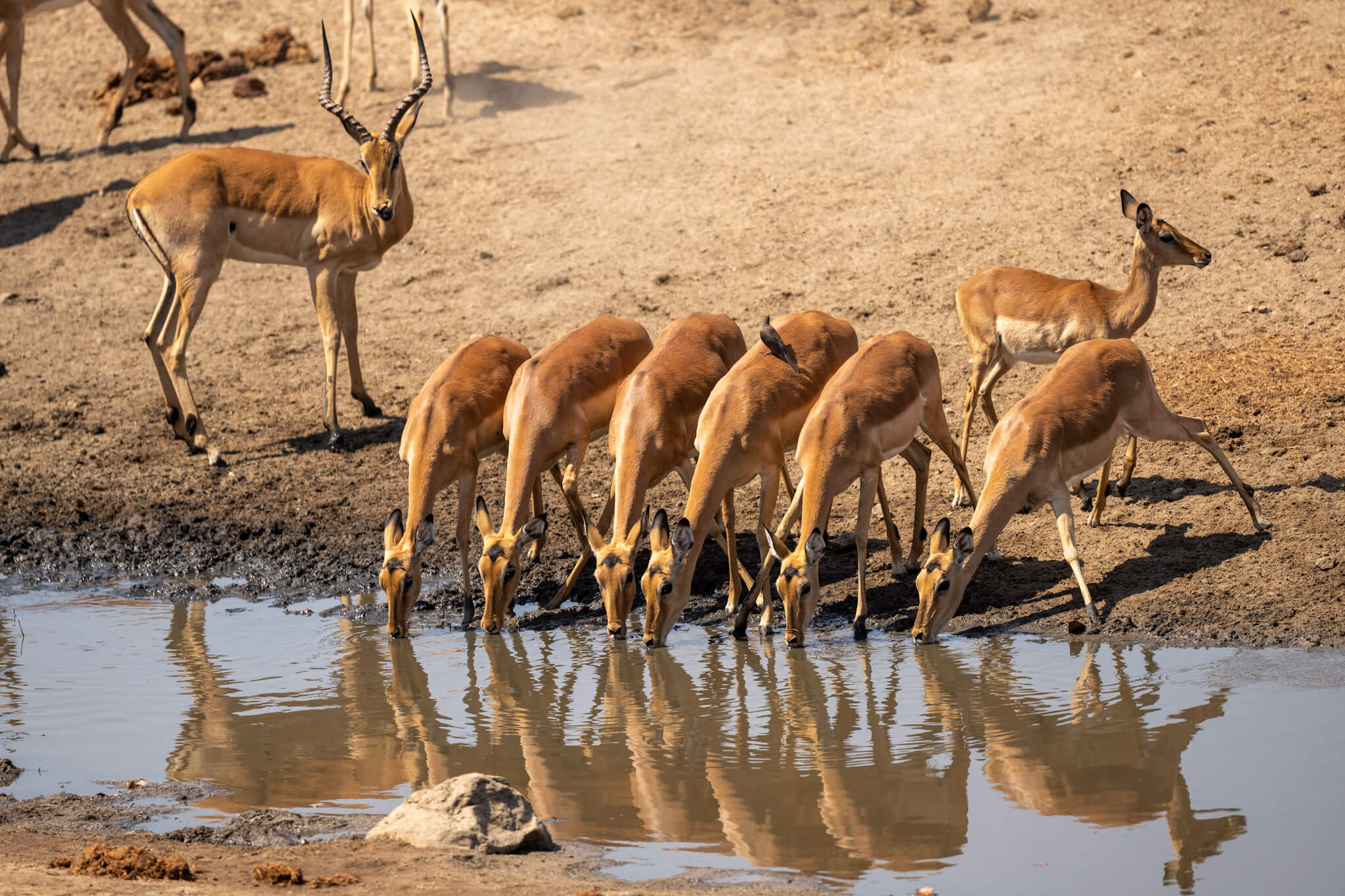
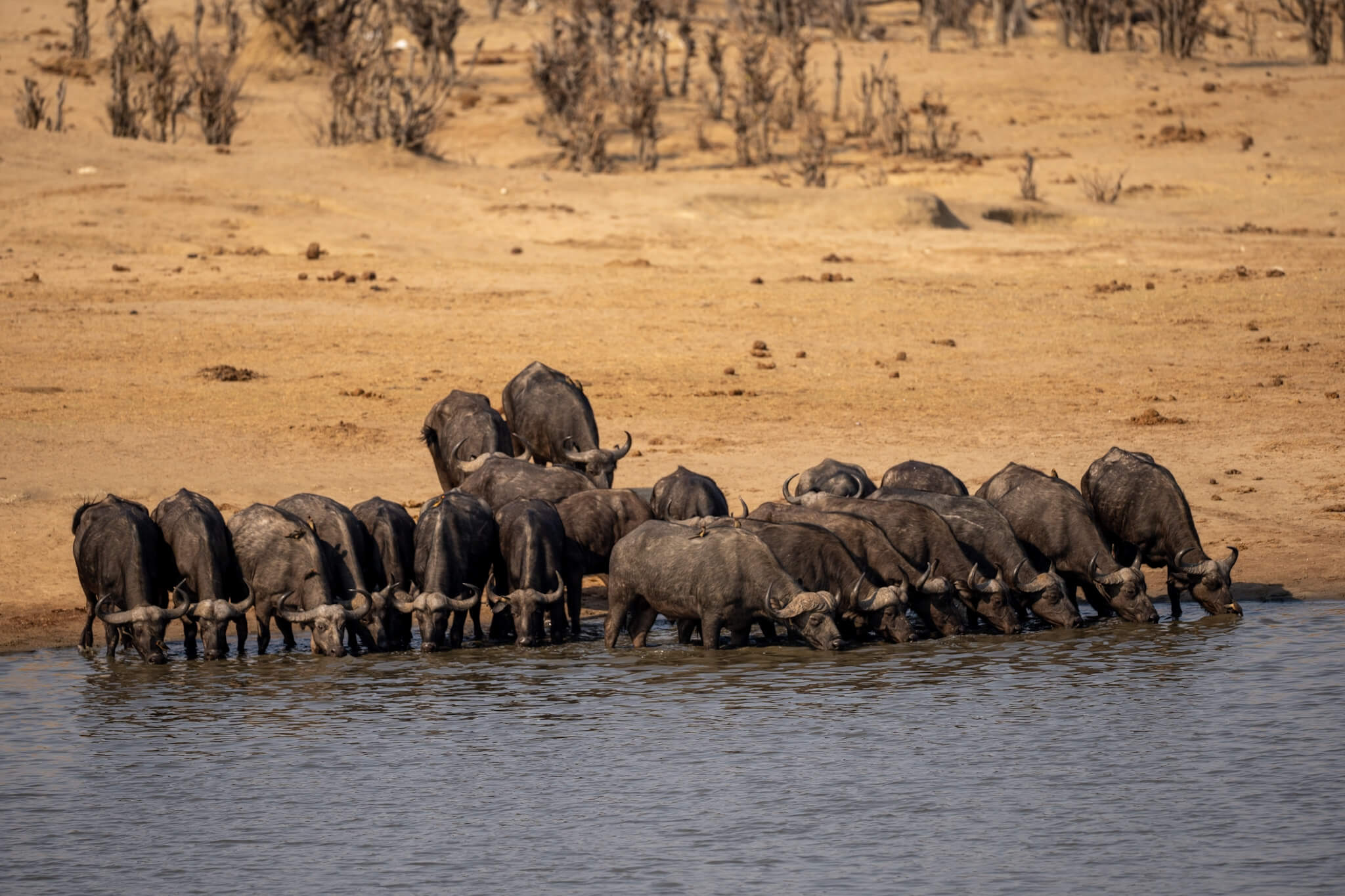
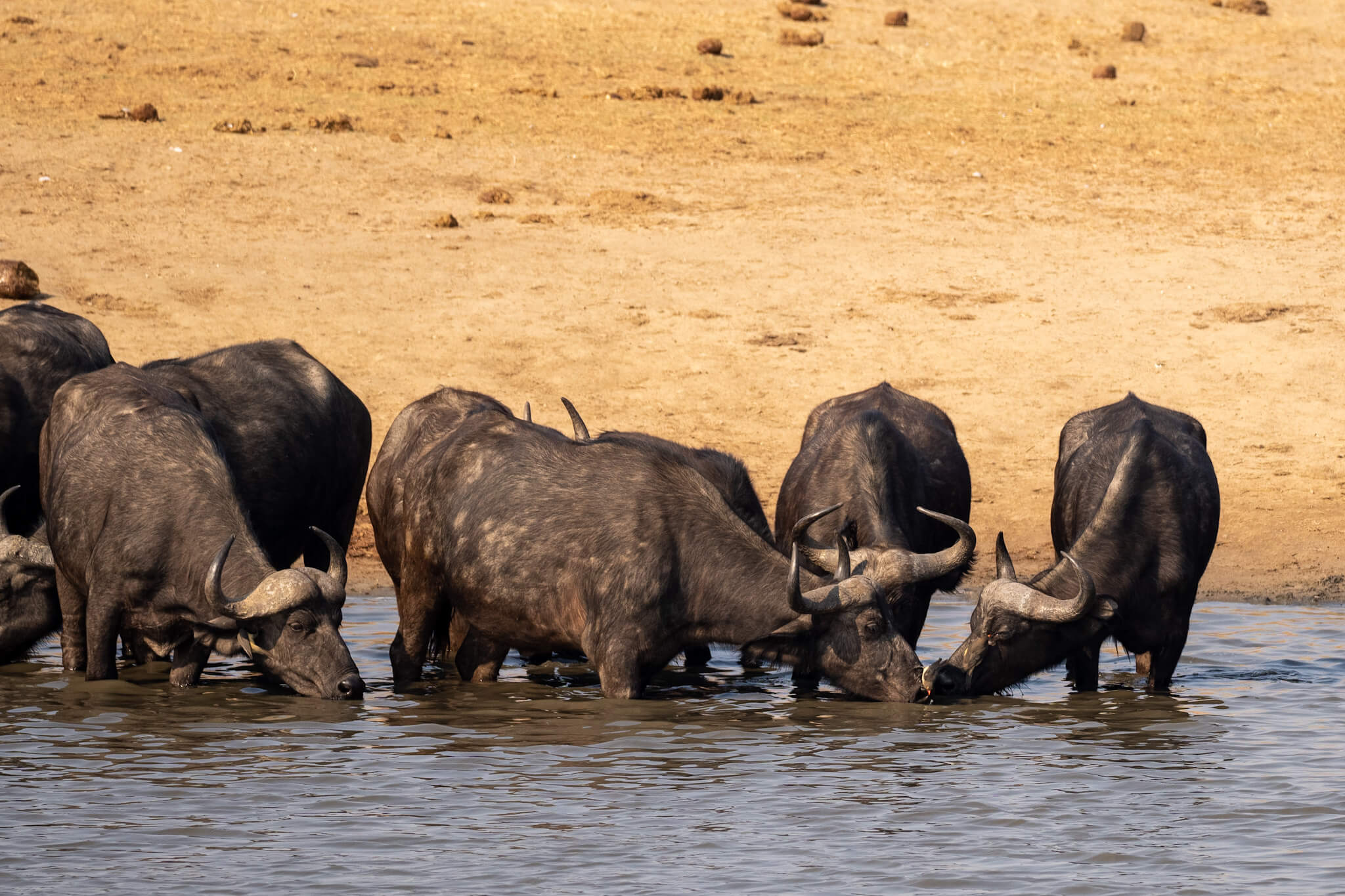
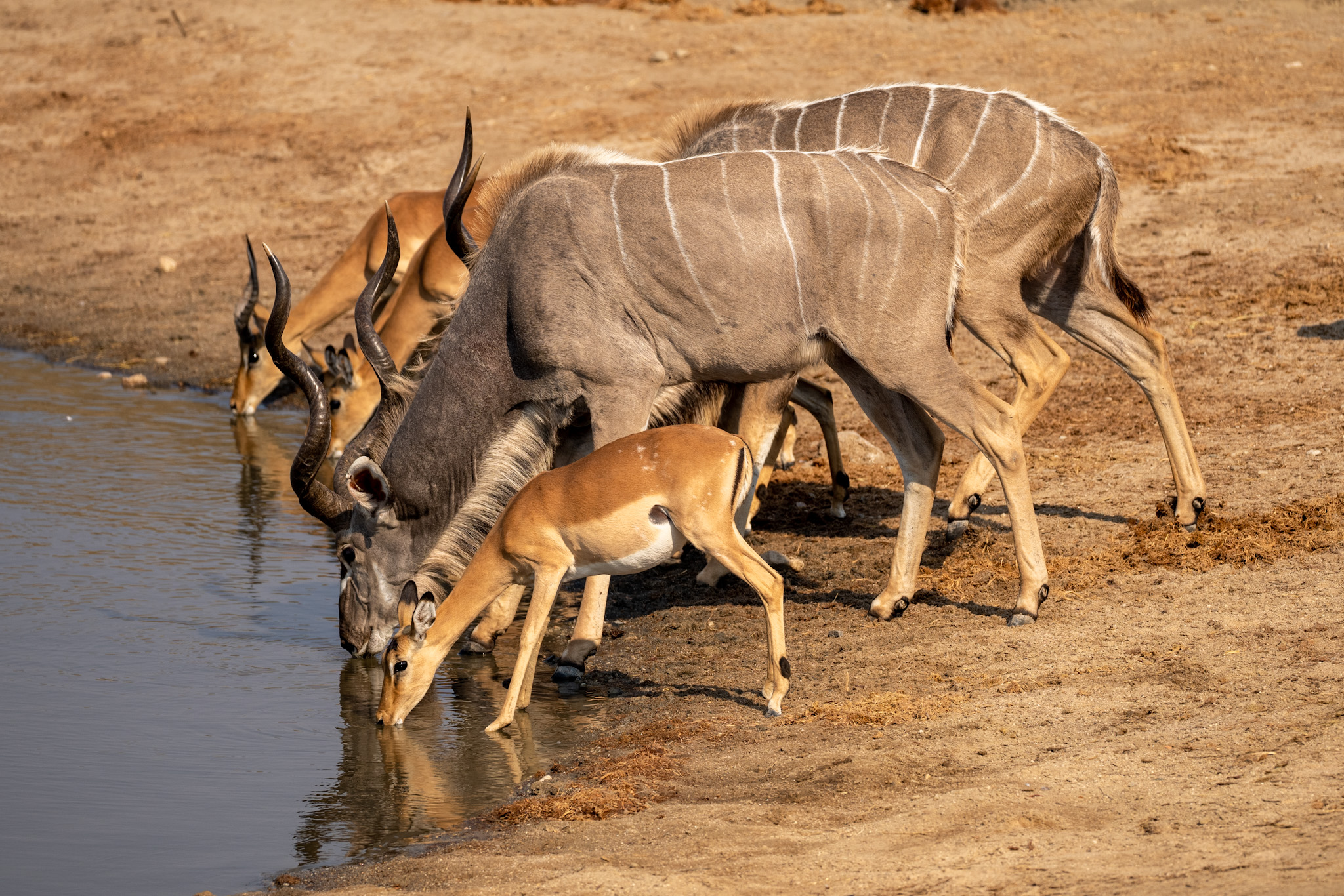
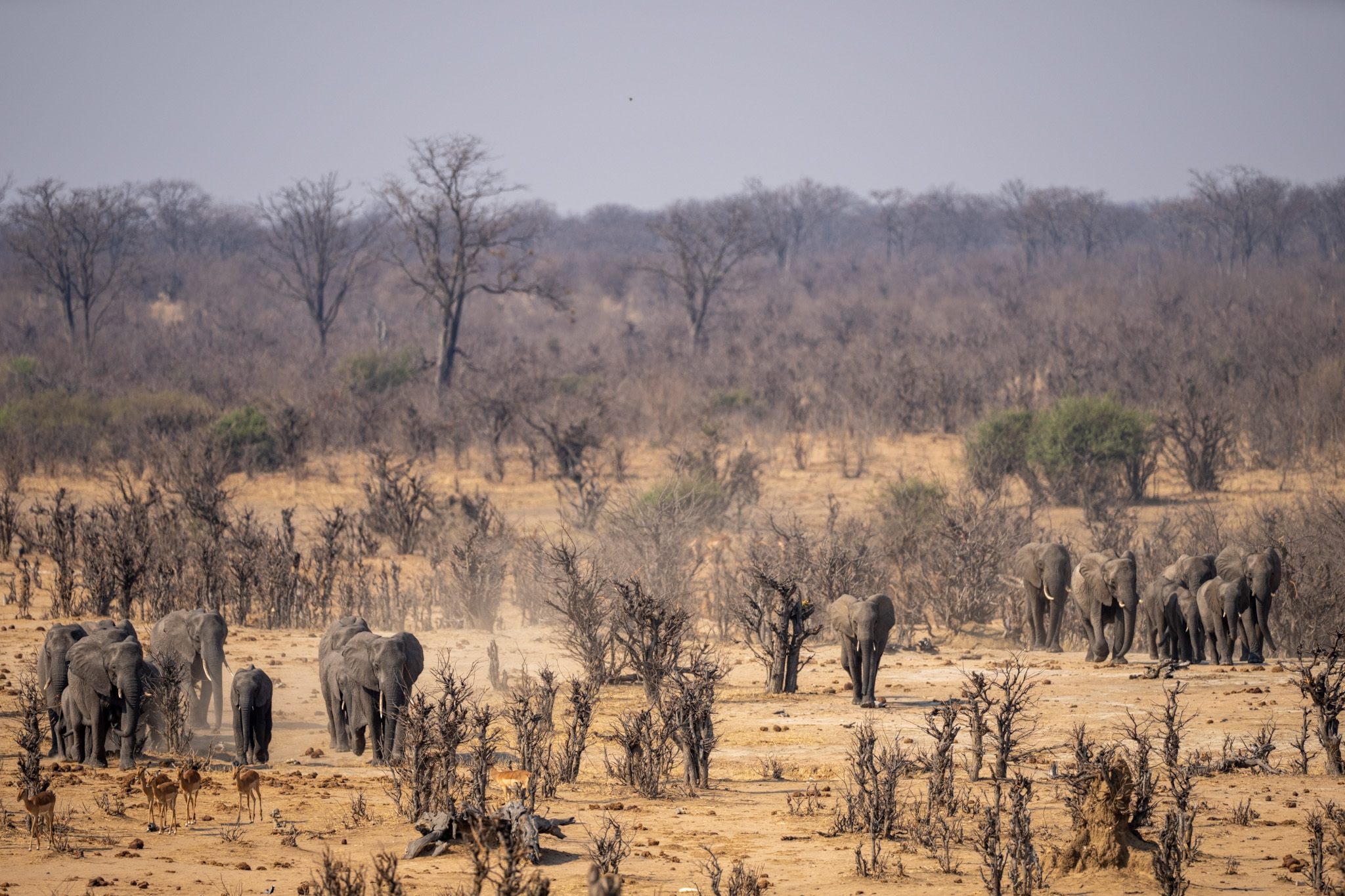
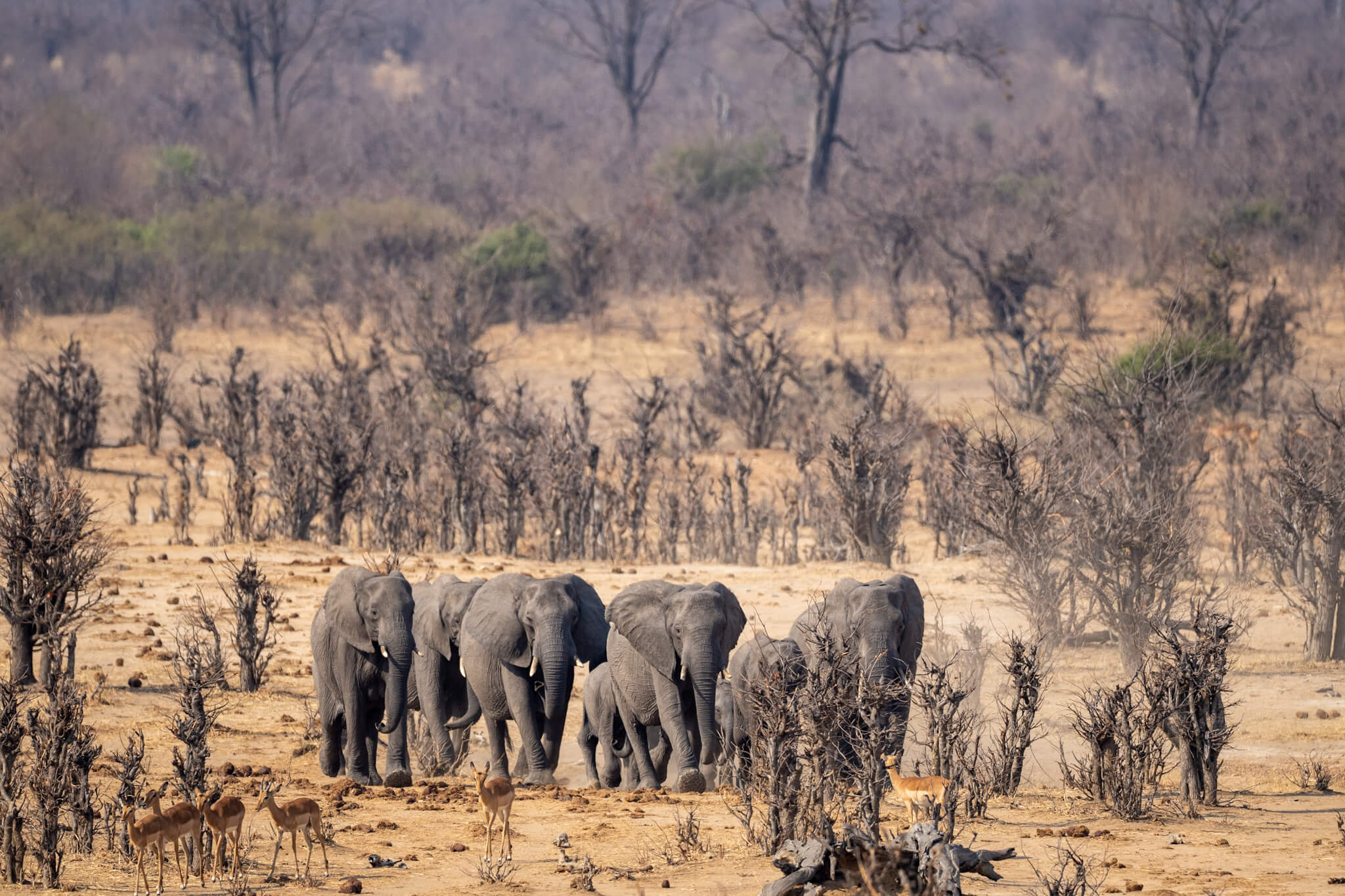
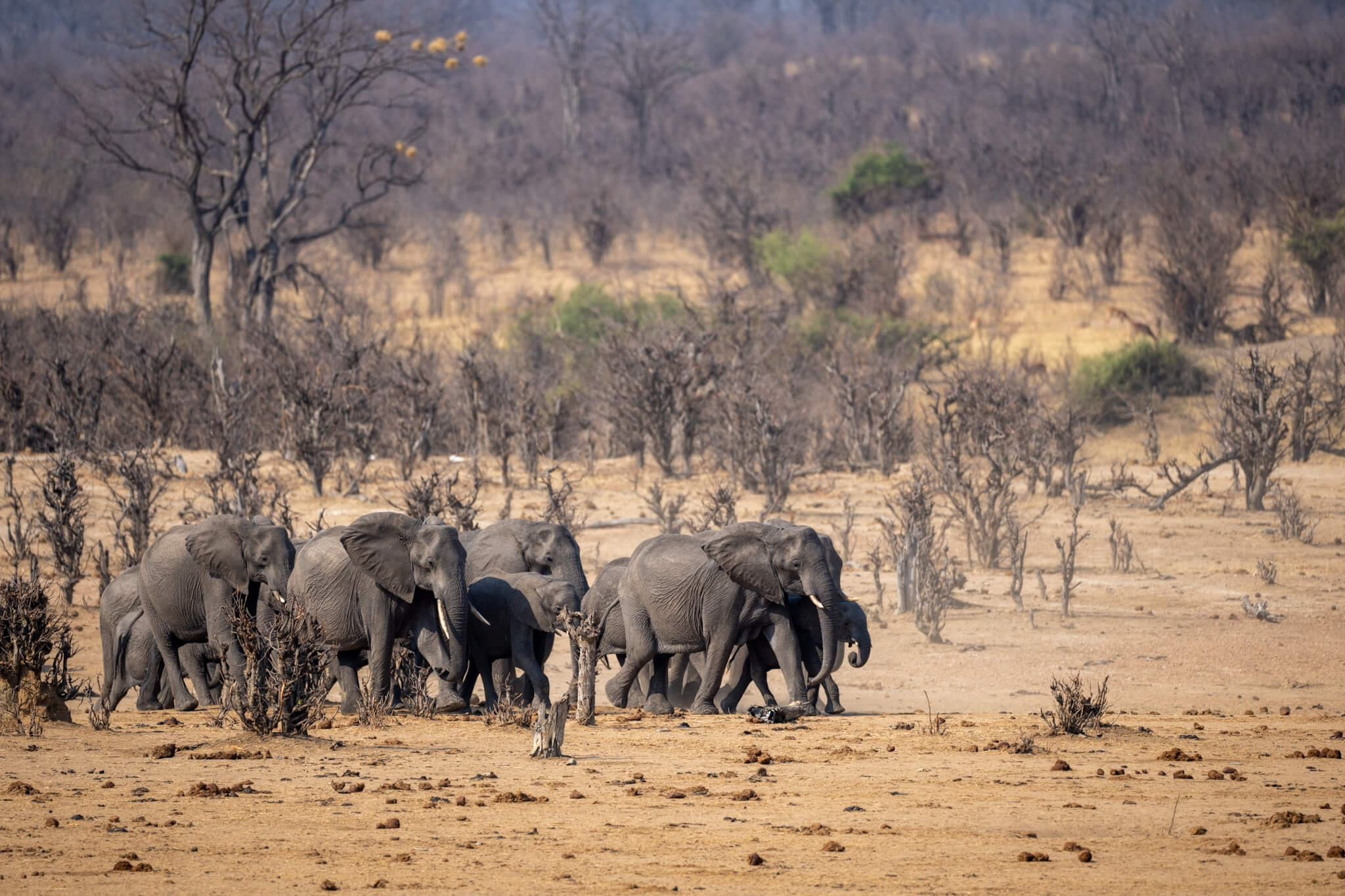
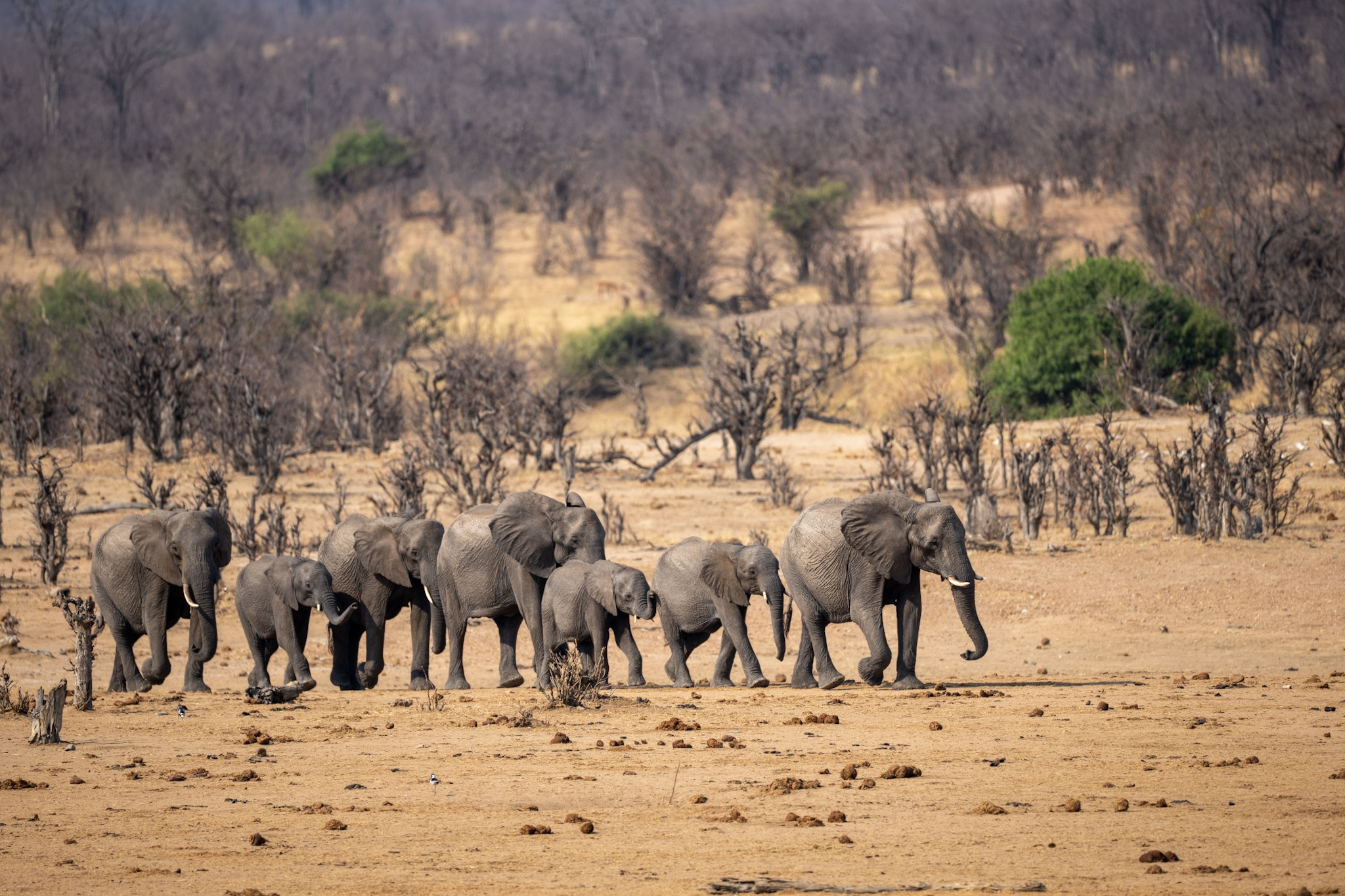
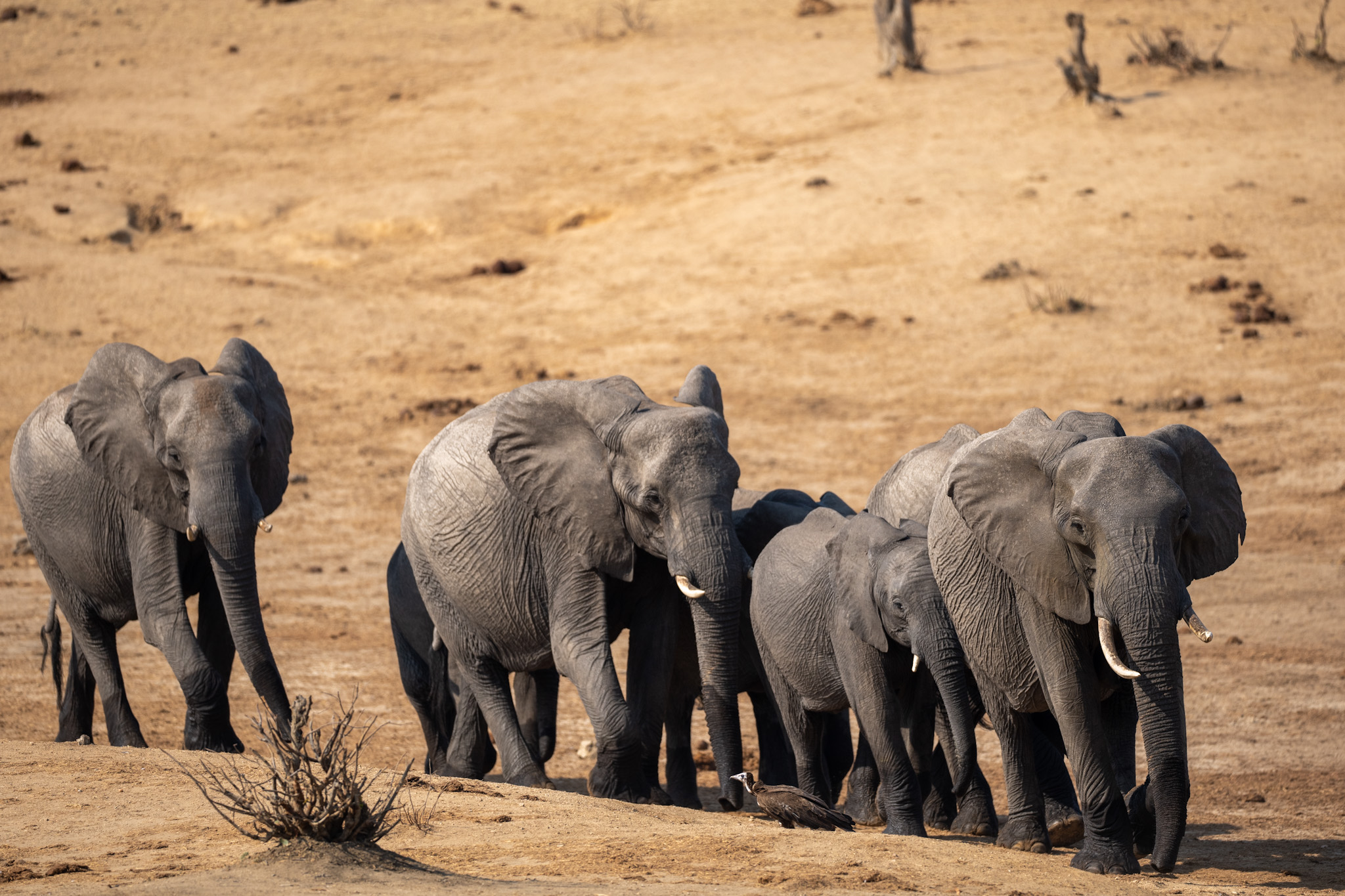
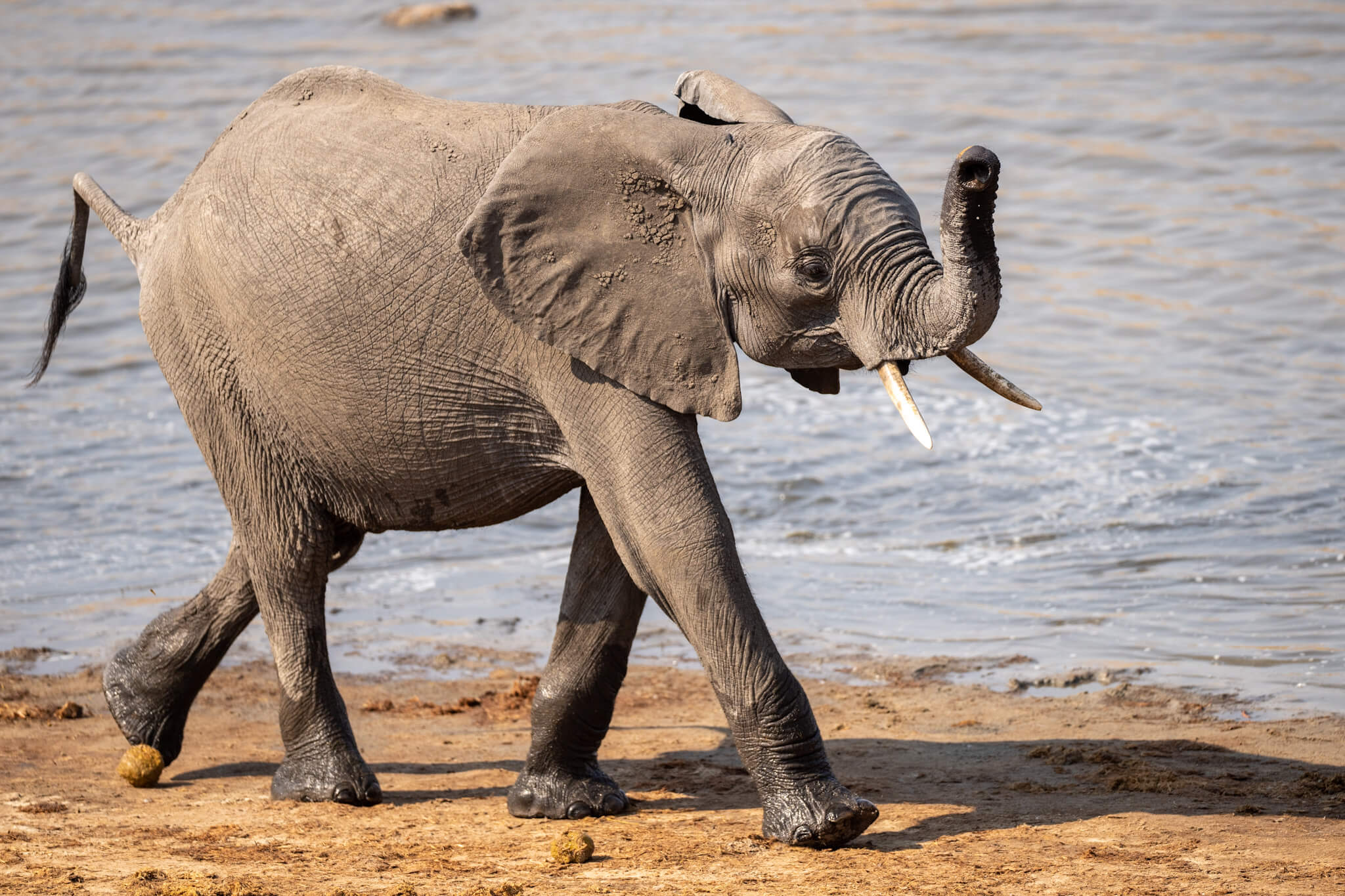
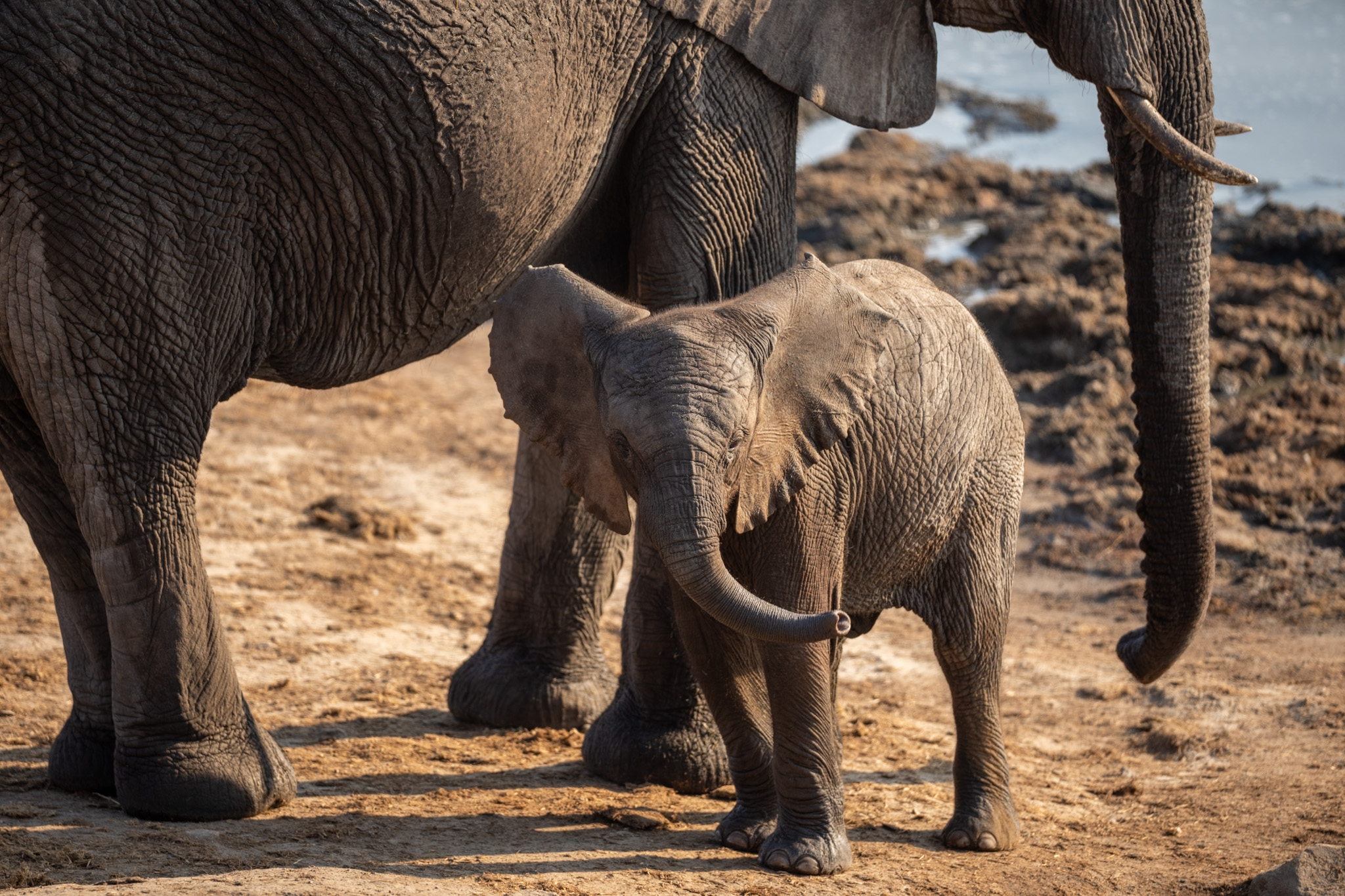
Loneliness in Shumba
After two nights in Sinamatella, we left in the morning and after a short stopover at Masuma Dam, we drove to the picnic spot Shumba, which was about 50 km away from Sinamatella. This was to be our exclusive campsite for the next night. The camp is located about 50 meters next to a waterhole. According to experience, an accommodation in the bush means nocturnal animal visits. In the evening some elephant bulls already showed up and we enjoyed the solitude very much. The warden in Shumba takes care of all the chores for us. So we did not have to do the dishes nor did we have to take care of the fire. He did everything for us and we enjoyed the atmosphere and the surrounding activities. The fences of these picnic spots are more symbolic. None of these fences are designed to keep an animal out, but they are respected as boundaries. In the morning, we were awakened by loud slurping noises to find that several elephants were setting about drinking fresh water from a water tank overflow pipe. They were standing right next to the fence, stretching their trunks as far as they could. Amazingly, they did not damage the fence during their action.
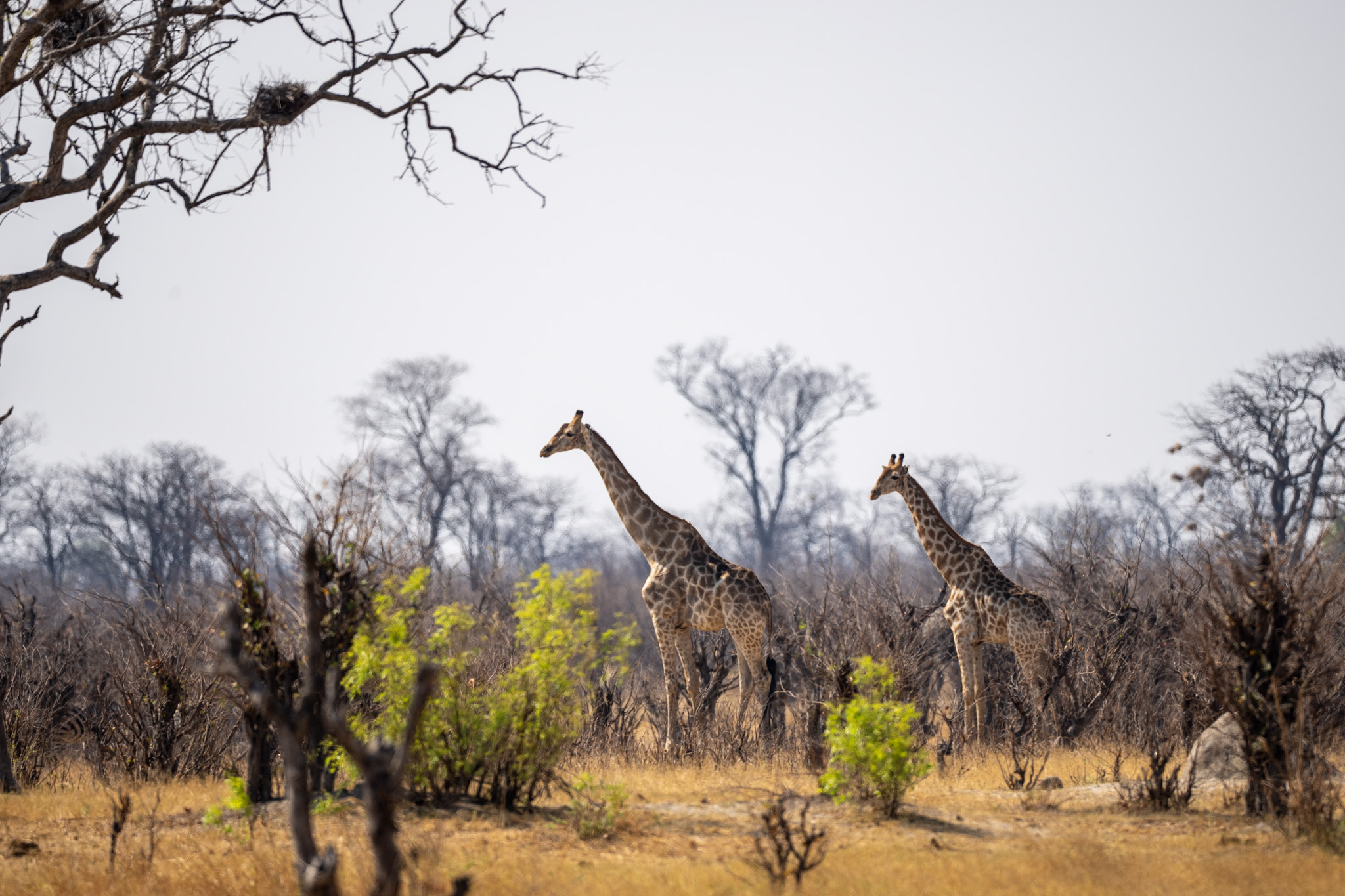
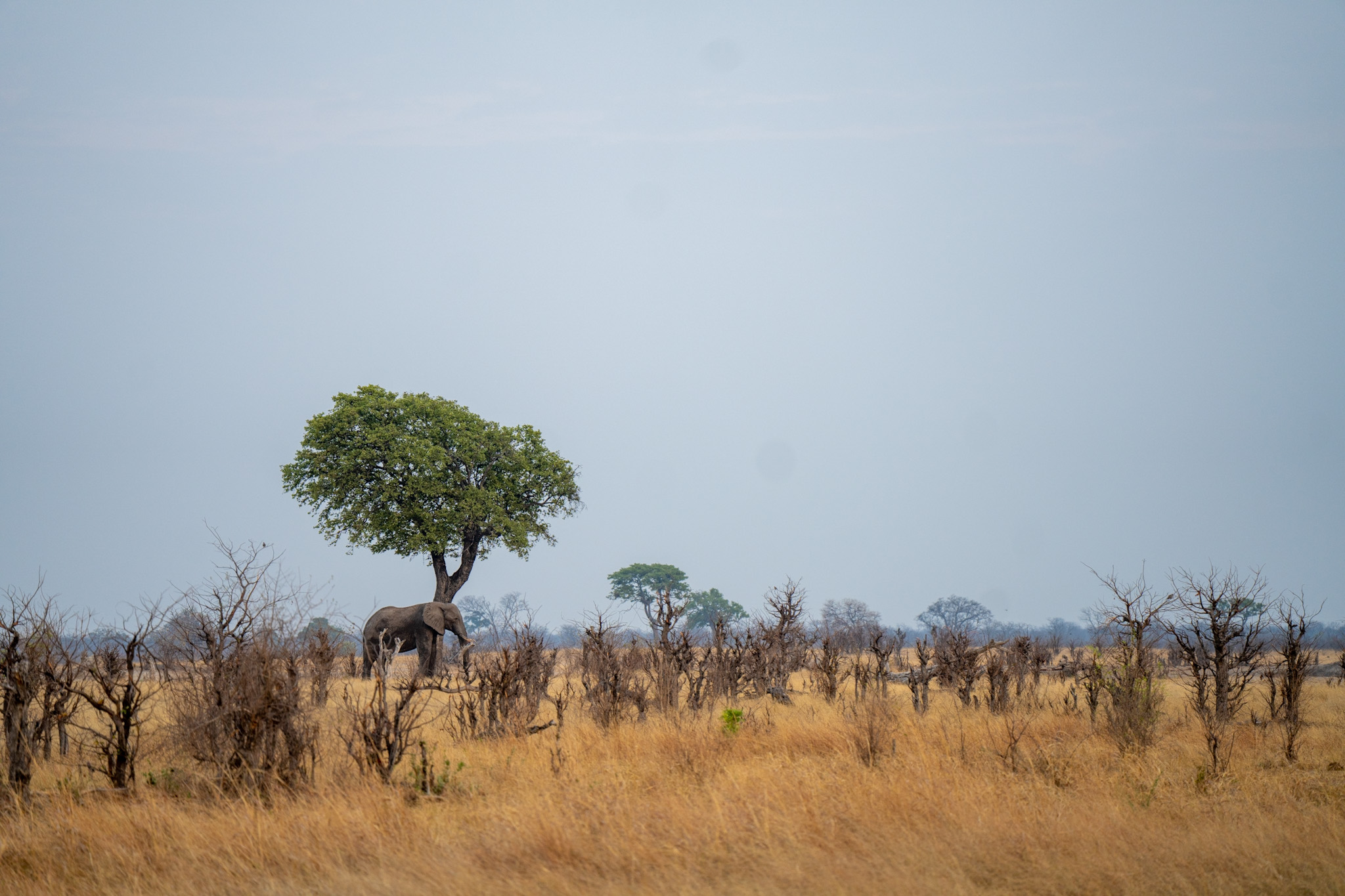
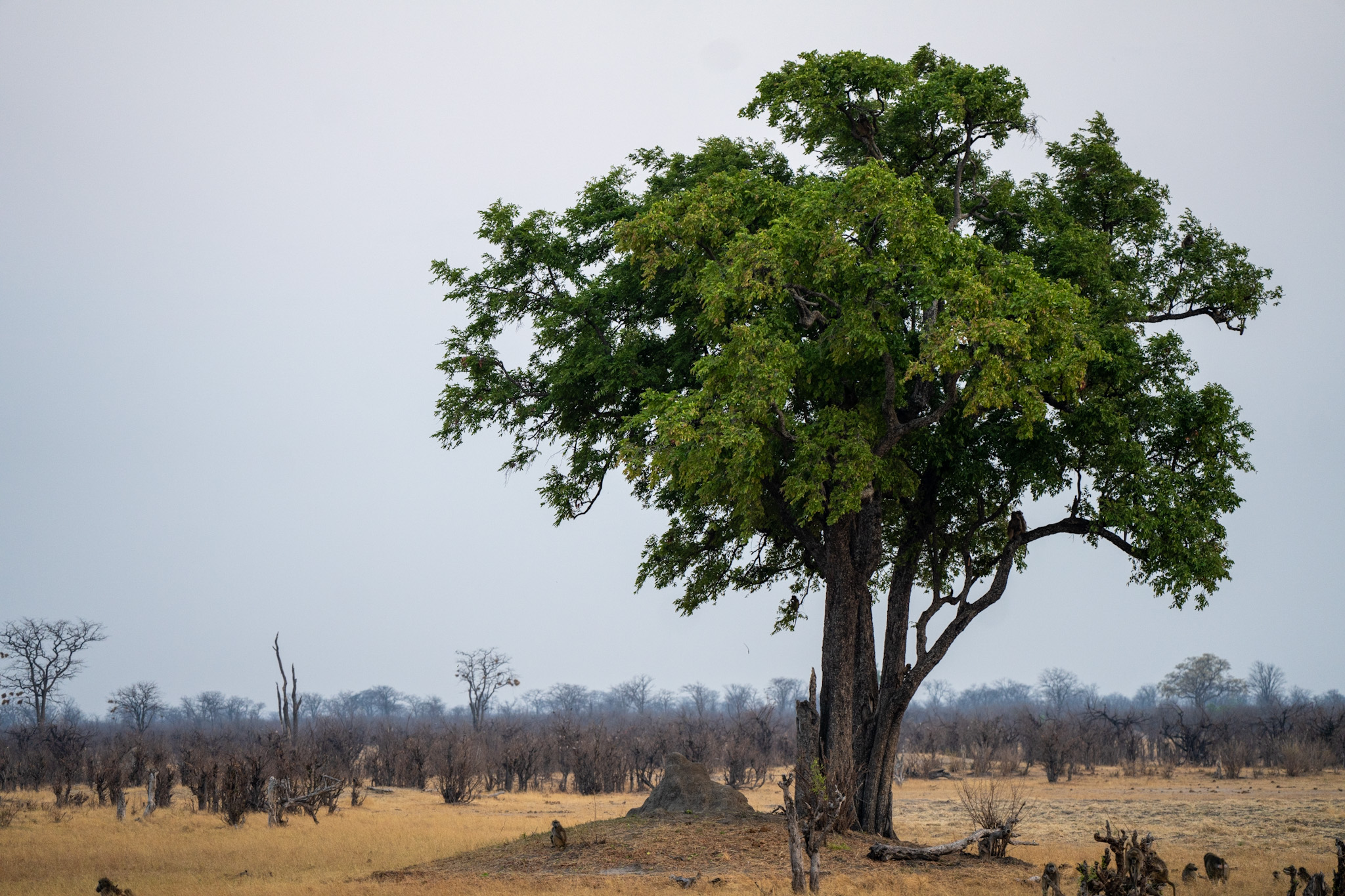
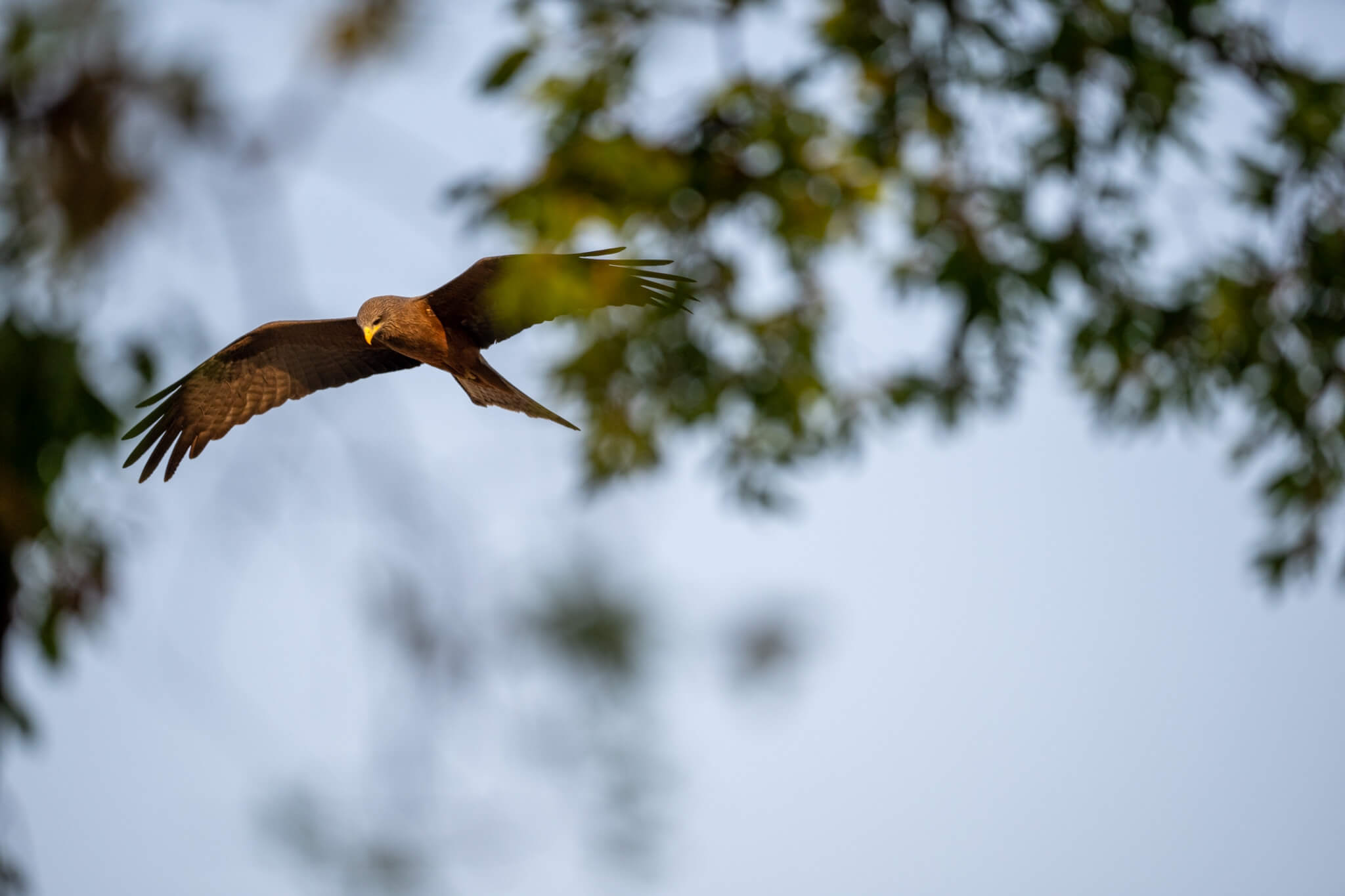
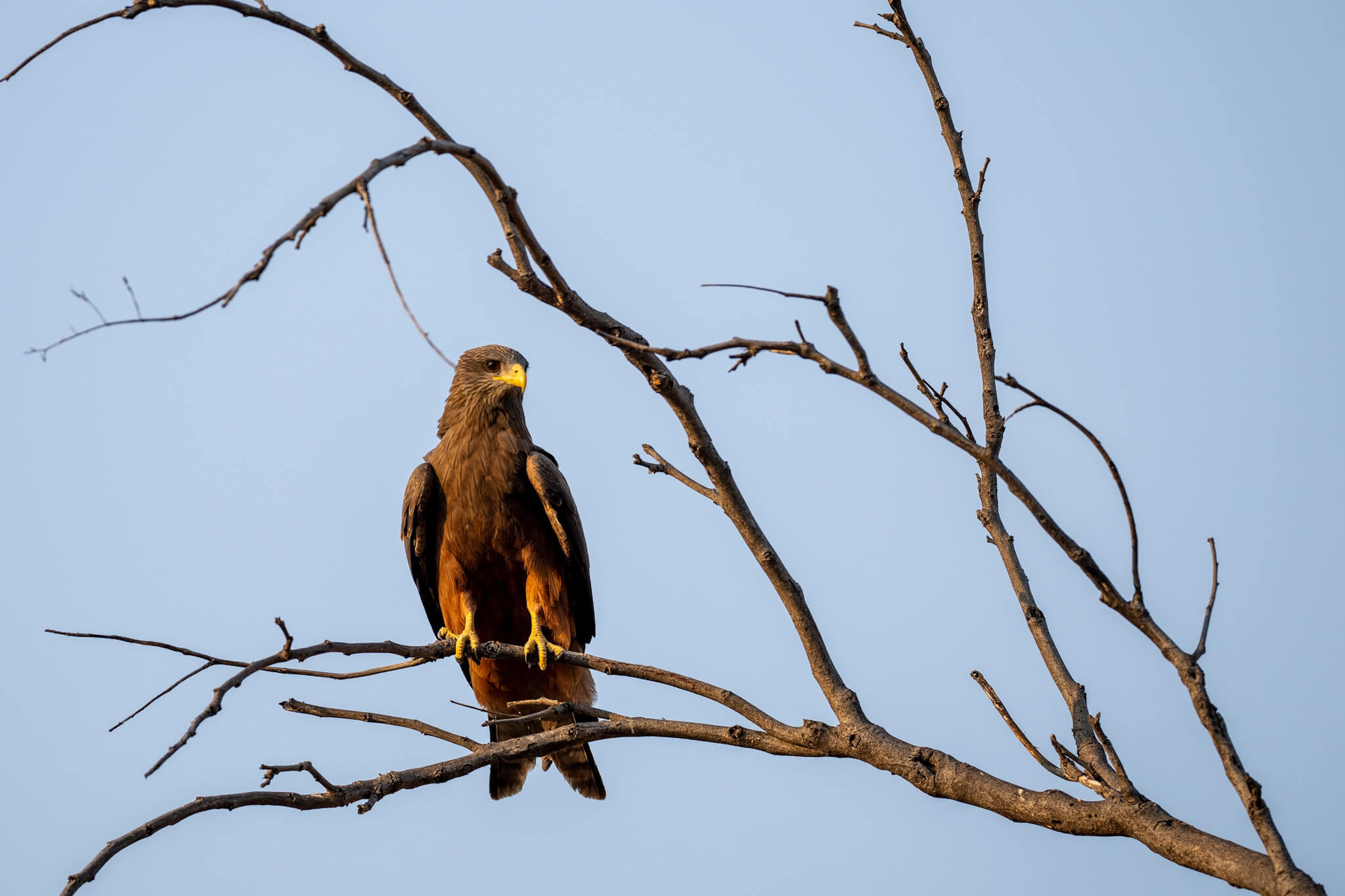
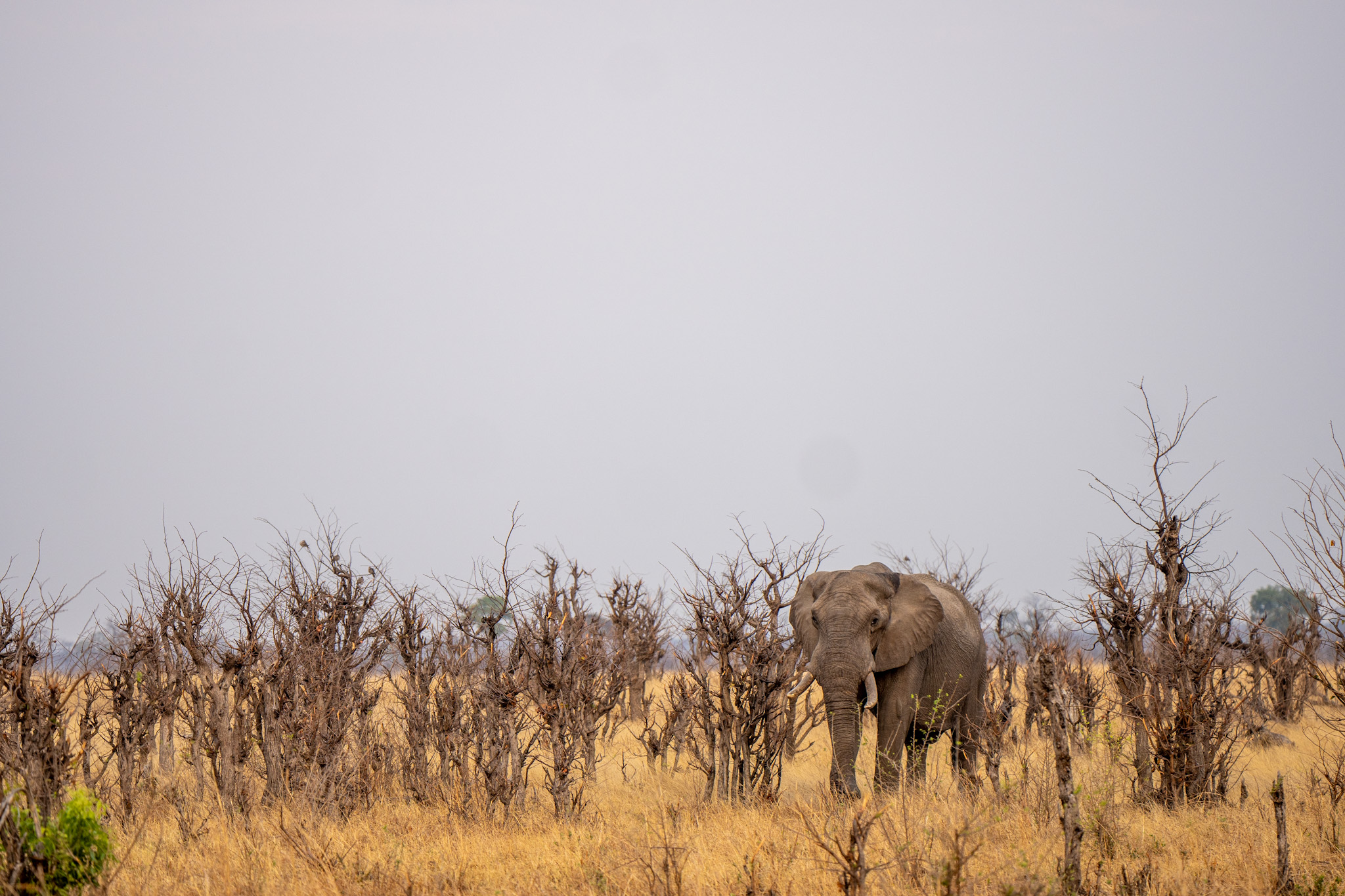
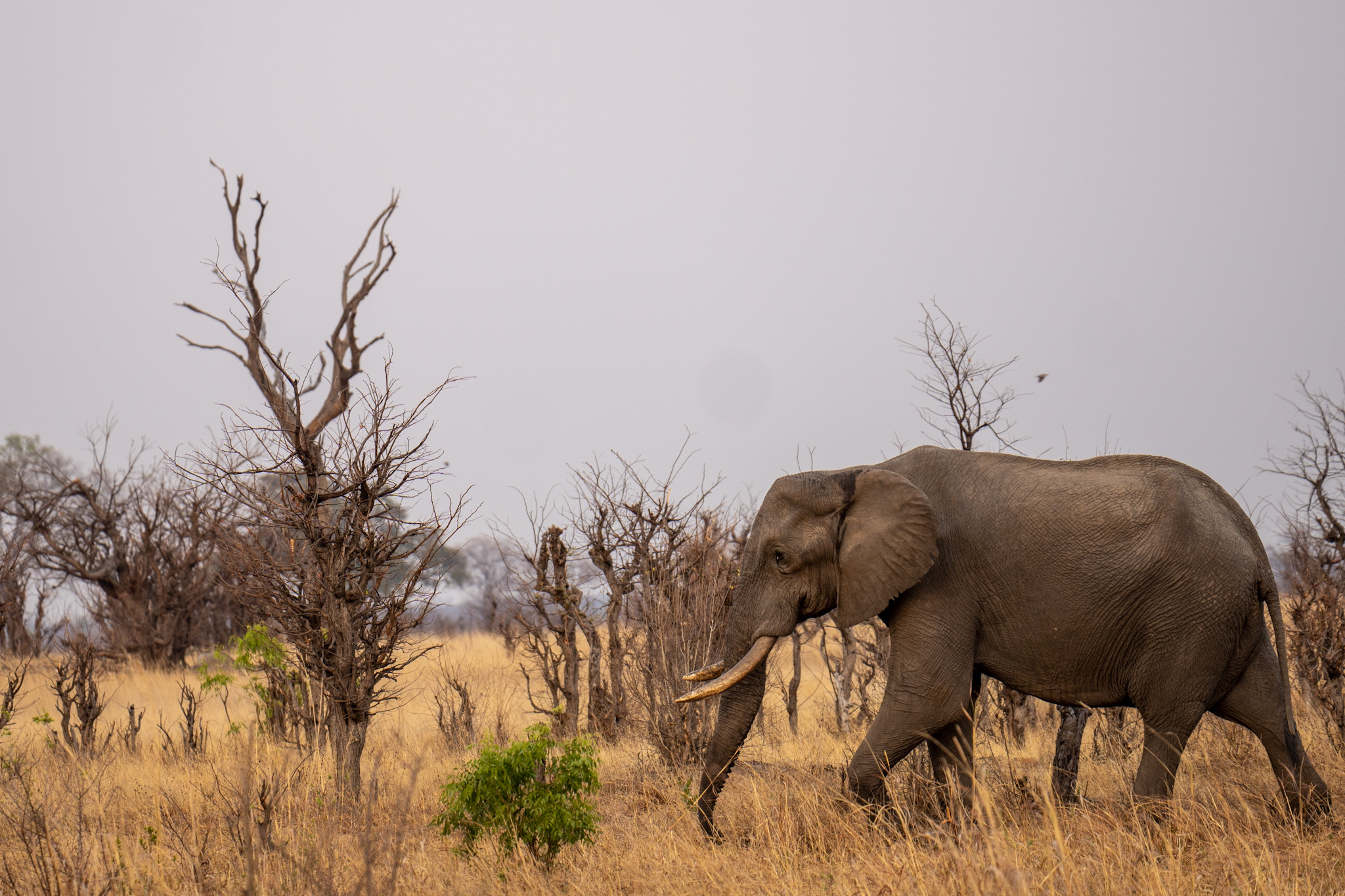
Room with a View
The morning had it all. When the sun had risen, all the bulls left the campsite immediately, but they returned little by little, feeding next to us or staying in the haze of the campsite. How we had missed that! Such encounters and situations only occurred in Botswana or Zimbabwe on our previous trips. A curious bull was closely examining the fence and Guido took the photo room with a view, photographing the bull through a shelter as a sunshade. We were in no hurry, enjoying the scenery and when all the elephants had slowly moved away, we prepared our departure and left the park through Main Camp, about 80 km from Shumba. We continued on to Bulawayo that morning where we relaxed for 3 days before heading to Gonarezhou.
